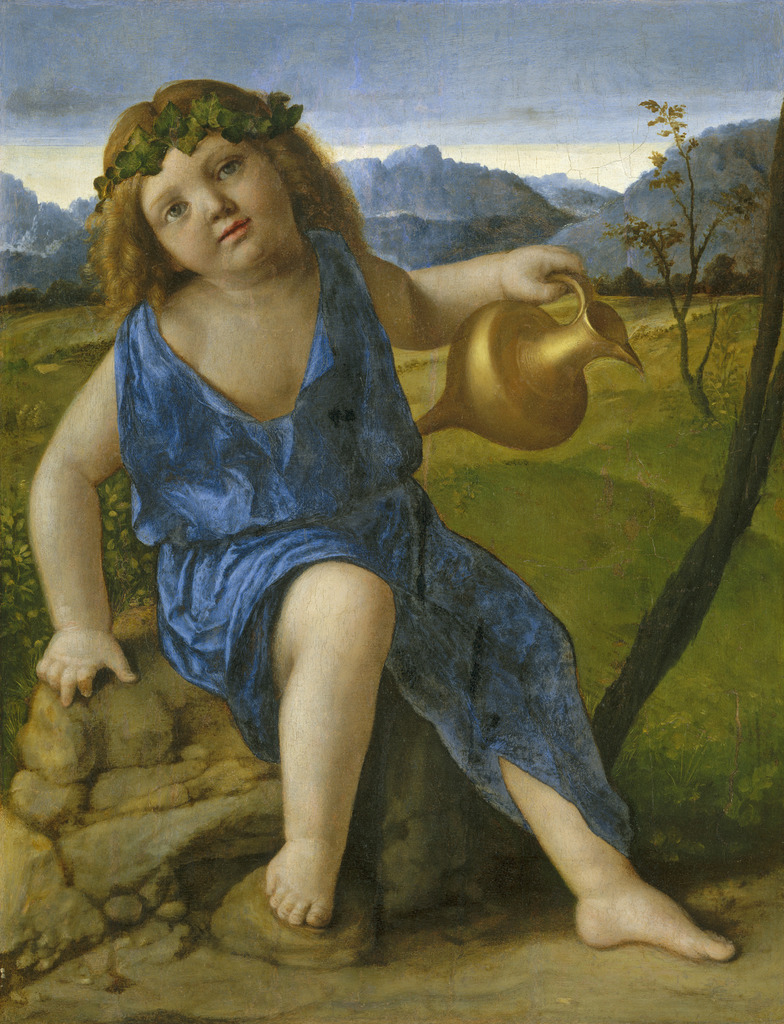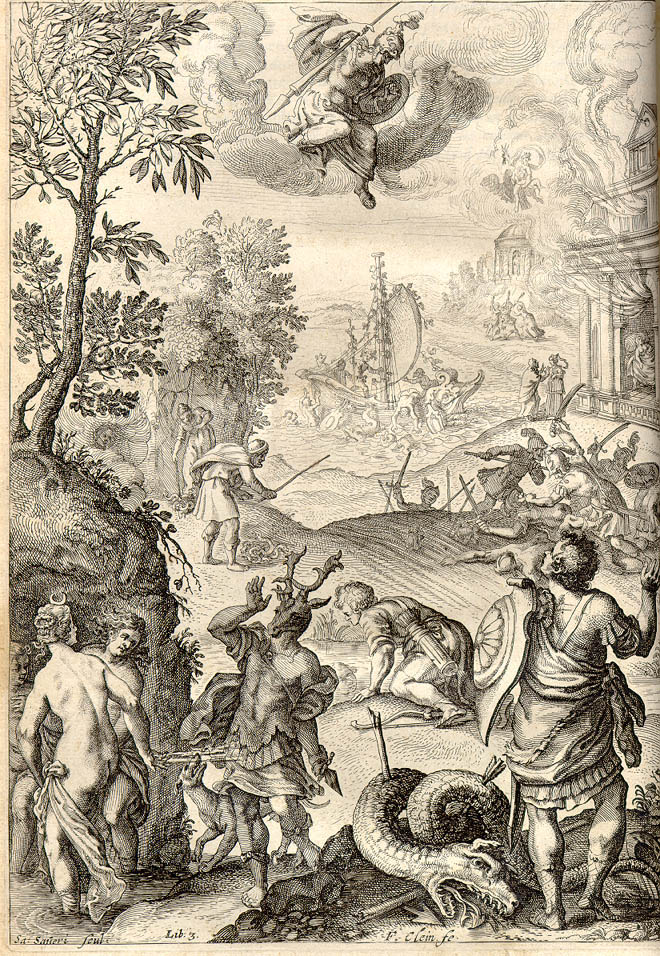
Arm'd troops from Dragons late-sowne teeth arise.
By his owne Hounds the Hart Actaeon dies.
Iuno a Beldame. Semele doth frie
In wisht imbraces. Bacchus from Ioues thigh
Takes second birth. The wise Tiresias twice
Doth change his sex. Scorn'd Eccho pines t' a voice:
Selfe-lou'd Narcissus to a Daffadill.
Bacchus, a Boy. The Tyrrhen's ship stands still,
With Iuy mor'd. Strange shapes the Saylers fright:
Who Dolphines turne, and still in ships delight.
And now the God, arriuing with his Rape
At sacred Creet, resumes his heauenly shape.
The King, his sonne1 to seeke his daughter sent,
Fore-doomed to perpetuall banishment,
Except his fortune to his wish succeed:
How pious, and how impious in one deed!
Earth wandred-through (Ioues thefts who can exquire?),
He shunnes his Country, and his Fathers ire:
With Phoebus Oracle consults, to know
What Land the Fates intended to bestow.
Who, thus: In desert fields obserue a Cow,
Yet neuer yoakt, nor seruile to the plow:
Follow her slowe conduct: and where she shall
Repose, there build: The place Boeotia2 call.
Scarce Cadmus from Castalian Caue3 descended,
When he a Heifer saw, by no man tended,
Her neck vngall'd with groaning seruitude.
The God ador'd, he foot by foot persew'd.
Cephisus flood,4 and Panope5 now past,
Shee made a stand; to heauen her fore-head cast,
With loftie hornes most exquisitely faire;
Then, with repeated lowings fill'd the ayre:
Lookes back vpon the company she led;
And, kneeling, makes the tender grass her bed.
Thanks-giuing Cadmus kist the vnknowne ground;6
The stranger fields and hills saluting round.
About to sacrifice to heauen's high King,
He sends for water from the liuing Spring.
A Wood there was, which neuer Axe did hew;
In it, a Caue, where Reeds and Osiers grew,
Rooft with a rugged Arch by Nature wrought;
With pregnant waters plentifully fraught.
The lurking Snake of Mars7 this Hold possest;
Bright scal'd, and shining with a golden crest;
His bulk with poyson swolne; fire-red his eyes:
Three darting tongues, three ranks of teeth comprise.
This fatall Well th' vnlucky Tyrians found;
Who with their down-let Pitcher, rays'd a sound.
With that, the Serpent his blew head extends;
And suffering ayre with horrid hisses rends.
The water from them fell: their colour fled:
Who all, astonisht, shook with sudden dread.
He wreaths his scaly foldes into a heape;
And fetcht a compasse with a mighty leape:
Then, bolt-vpright his monstrous length displaies
More then halfe way; and all the Woods suruaies.
Whose body, when all seene, no lesse appeares,
Then that, which parts the two Coelestiall Beares.8
Whether the Tyrians sought to fight, or flie,
Or whether they through feare could neither trie;
Some crasht he 'twixt his iawes; some claspt to death;
Some kills with poyson; others with his breath.
And now the Sunne the shortest shadowes made;
Then, Cadmus, wondring why his seruants stai'd,
Their foot-steps trac't. A hide the Heroe wore,
Which late he from a slaughtred Lyon tore:
His Armes a dart, a bright steele-pointed Speare;
And such a minde as could not stoope to feare.
When he the Wood had entred, and there view'd
The bodies of the slaine with blood imbrew'd;
The insulting Victor quenching his dire thirst
And their suckt wounds; he sigh't, as heart would burst:
Then said, I will reuenge, o faithfull Mates,
Your murders, or accompany your Fates.
With that he lifteth vp a mightie stone,
Which with a more then manly force was throwne.
What would haue batter'd downe the strongest wall,
And shiuered towres, doth giue no wound at all.
The hardness of his skin, and scales that growe
Vpon his armed back, repulse the blowe.
And yet that strong defence could not so well
The vigour of his thrilling Dart repell;
Which through his winding back a passage rends:
There sticks: the steele into his guts descends.
Rabid with anguish, he retorts his looke
Vpon the wound; and then the jauelin tooke
Betweene his teeth; it euery way doth winde:
At length, tugg'd out, yet leaues the head behind.
His rage increast with his augmenting paines:
And his thick-panting throte swels with full veines.
A cold white froth surrounds his poys'nous jawes:
On thundring Earth his trayling scales he drawes:
Who from his black and Stygian9 maw eiect's
A blasting breath, which all the ayre infect's.
His body, now he circularly bends;
Forth-with into a monstrous length extends:
Then rusheth on, like showr-incensed Floods;
And with his brest ore-beares the obuious Woods.
The Prince gaue way; who with the Lyon's spoyle
Sustayn'd th' assault; and forc't a quick recoile,
His Lance fixt in his jawes. What could not feele,
He madly wounds; and bites the biting steele.
Th' invenom'd gore, which from his palate bled,
Conuerts the grasse into a duskie red:
Yet, slight the hurt, in that the Snake with-drew;
And so, by yeelding, did the force subdue.
Till Agenorides10 the steele imbrew'd
In his wide throte, and still his thrust pursu'd;
Vntill an Oke his back-retrait with-stood:
There, he his neck transfixt: with it, the Wood.
The tree bends with a burden so vnknowne;
And, lashed by the Serpents taile, doth grone.
While he suruai'd the hugeness of his foe,
This voice he heard (from whence he did not knowe)
Why is that Serpent so admir'd by thee?
Agenor's sonne, a Serpent thou shalt bee.
He speechlesse grew: pale feare repell'd his blood;
And now vncurled haire like bristles stood.
Behold! mans Fautresse,11 Pallas (from the sky
Descending to his needfull aid) stood by:
Who bade him in the turn'd-vp furrowes throwe
The Serpents teeth; that future men might growe.
He, as commanded, plow'd the patient Earth:
And therein sow'd the seeds of humane birth.
Lo (past beliefe!) the Clods began to moue:
And tops of Lances first appear'd aboue:
Then, Helmets, nodding with their plumed Crests;
Forth-with, refulgent Pouldrons, plated Brests;
Hands, with offensiue weapons charg'd, insew:
And Target-bearing troops of Men vp-grew.
So in our Theater's solemnities,
When they the Arras rayse, the Figures rise:
Afore the rest, their faces first appeare;
By little and by little then they reare
Their bodies, with a measure keeping hand,
Vntill their feet vpon the border stand,
Bold Cadmus, though much daunted at the sight
Of such an Host, addrest him to the fight.
Forbeare (a new-borne Souldier cry'd) t' ingage
Thy better fortune in our ciuill rage!
With that, he on his Earth-bred brother flew:
At whom, a deadly dart another threw.
Nor he that kil'd him, long suruiues his death;
But, through wide wounds expires his infant breath.
Slaughter, with equall furie, runnes through all:
And by vnciuill ciuill blowes they fall.
The new-sprung Youth, who hardly life possest,
Now panting, kick their Mother's bloody brest.
But fiue suruiu'd: of whom, Echion one;
His Armes to Earth by Pallas counsell throwne,
He craues the loue he offers. All accord
As Brothers should: and what they take afford.
Sidonian Cadmus these assist, to build
His loftie walls; the Oracle fulfil'd.
Now flourisht Thebes: now did thy exile proue
In shew a blessing; those that rule in loue
And warre,12 thy Nuptials with their daughter grace:
By such a Wife to haue so faire a race;
So many sonnes and daughters; nephews too
(The pledges of their peacefull beds) insue;
And they now growne to excellence and powre.
But, Man must censur'd be by his last houre:
Whom truly we can neuer happy call,
Afore his death, and closing funerall.
In this thy euery way so prosperous state,
Thy first misse-hap sprung from thy Nephew's13 fate:
Whose browes vnnaturall branches ill adorne;
By his vngratefull doggs in peeces torne.
Yet fortune did offend in him; not he:
For, what offence may in an error be?
With purple blood, slaine Deare the Hills imbrew:
And now high Noone the shades of things withdrew;
While East and West the equall Sunne partake:
Thus, then, Hyantius14 to his Partners spake,
That trod the Mazes of the pathlesse Wood:
My Friends our nets and jauelins reake with blood:
Enough hath beene the fortune of this day:
To morrow, when Aurora shall display
Her rosie cheeks, we may our sports renew.
Now, Phoebus, with inflaming eye doth view
The crannied Earth: Here let our labour end:
Take vp your toyles. They gladly condescend.
A Vale there was with Pines and Cypresse crown'd,
Gargaphie call'd; for Diana's loue renown'd.
A shadie Caue possest the inward part,
Not wrought by hands; there Nature witty Art
Did counterfeit: a natiue Arch she drew,
With Pumice and light Tofusses, that grew.
A bubbling Spring,15 with streames as cleere as glasse,
Ran chiding by, inclos'd with matted grasse.
The weary Huntresse vsually here laues
Her Virgin lims, more pure then those pure waues.
And now her Bowe, her Iau'ling, and her Quiuer;
Doth to a Nymph, one of her Squires, deliuer:
Her light impouerisht Robes another held:
Her buskins two vntie. The better skild
Ismenian Crocale,16 her long haire wound
In pleited-wreathes: yet was her owne vnbound.
Neat Hayle, Niphe, Rhanis, Psecas (still
Imploy'd) and Phiale the Lauers fill.
While here Titania17 bath'd (as was her guise)
Lo Cadmus Nephew, tyr'd with exercise,
And wandring through the Woods, approacht this Groue
With fatall steps: so Destiny him droue!
Entring the Caue with skipping Springs bedeaw'd
The Nymphs, all naked, when a man they view'd,
Clapt their resounding breasts, and fild the Wood
With sudden shreekes: like Iuory pales they stood
About their Goddesse: but shee, far more tall,
By head and shoulders ouer-tops them all.
Such as that colour, which the Clowds adorns,
Shot by the Sunne-beam's; or the rosie Morn's:
Such flusht in Dians cheeks, being naked tane.
And though inuiron'd by her Virgin trayne,
Shee side-long turnes, looks back, and wisht her bow:
Yet, what she had, she in his face did throwe.
With vengefull Waters sprinkled; to her rage
These words shee addes, which future Fate presage
Now, tell how thou hast seene me disarray'd;
Tell if thou canst: I giue thee leaue. This said,
Shee to his neck and eares new length imparts;
T' his Browe the antlers of long-liuing Harts
His leggs and feet with armes and hands supply'd;
And cloth'd his body in a spotted hide.
To this, feare added. Autonoeius18 flyes,
And wonders at the swiftnesse of his thighes.
But, when his looks he in the Riuer view'd,
He would haue cry'd, Woe's me! No words insew'd
His words were grones. He frets, with galling teares,
Cheeks not his owne; yet his owne mind he beares.
What should he doe? Goe home? or in the Wood
For euer lurke? Feare, this; shame that withstood.
While thus he doubts, his Doggs their Master view
Black foot19 and Tracer, opening first, persew:
Sure Tracer, Gnossus; Black-foot Sparta bare.
Then all fell in, more swift then forced Ayre:
Spie, Rauener, Clime-cliffe; these Arcadia bred:
Strong Fawn-bane, Whirlewinde, eager Follow-dread;
Hunter; for sent; for speede, Flight went before;
Fierce Saluage, lately ganched by a Bore;
Greedy, with her two whelps; grim Wolf-got Ranger;
Stout Shepherd, late preseruing flocks from danger;
Gaunt Catch, whose race from Sicyonia came;
Patch, Courser, Blab, rash Tyger neuer tame;
Blanch, Mourner, Royster, Wolfe surpassing strong;
And Tempest, able to continue long:
Swift, with his brother Churle, a Cyprian hound;
Bold Snatch; whose sable brows a white star cround;
Cole, shag-hair'd Rug, and Light-foot wondrous fleet,
Bred of a Spartan Bitch, his Sire of Creet:
White-tooth, and Ring-wood (others not to expresse.)
O're Rocks, o're Crags, o're Cliffs that want accesse,
Through streightned wayes, and where there was no way,
The well-mouth'd hounds pursue the princely prey.
Where oft he wont to follow, now he flyes;
Flyes from his family! in thought he cryes,
I am Actaeon, seruants, knowe your Lord!
Thoughts wanted words. High skyes the noyse record.
First, Collier pincht him by the haunch: in flung
Fierce Kill-deare; Hill-bred on his shoulder hung.
These came forth last; but crost a nearer way
A-thwart the hills. While thus their Lord they stay,
In rush the rest; who gripe him with their phangs.
Now is no roome for wounds. Grones speake his pangs,
Though not with humane voyce, vnlike a Hart
In whose laments the knowne Rocks beare a part.
Pitcht on his knees, like one who pitty craues,
His silent looks, instead of Armes, he waues.
With vsuall showts their Dogs the Hunters cheare;
And seeke, and call Actaeon. He (too neare!)
Made answer by mute motions, blam'd of all
For being absent at his present fall.
Present he was, that absent would haue beene;
Nor would his cruell hounds haue felt, but seene.
Their snowts they in his body bathe; and teare
Their Master in the figure of a Deare:
Nor, till a thousand wounds had life disseis'd,
Could quiuer-bearing Dian be appeas'd.
'Twas censur'd variously: for, many thought
The punishment farre greater then the fau't.
Others so sowre a chastitie commend,
As worthy her: and both, their parts defend.
Ioue's wife20 not so much blam'd or prays'd the deed;
As shee rejoyceth at the wounds that bleed
In Cadmus Family; who keeps in mind
Europa's rape, and hateth all the kind.
Now new occasions fresh displeasure moue:
For Semele was great with child by Ioue.
Then, thus shee scolds: O, what amends succeeds
Our lost complaints! I now will fall to deeds.
If we be more then titularly great;
If we a Scepter sway; if heauen our seat;
If Ioue's fear'd Wife and Sister (certainly,
His Sister) torment shall the Whore destroy.
Yet, with that theft perhaps she was content,
And quickly might the injurie repent:
But, shee conceiues, to aggrauate the blame,
And by her Belly doth her crime proclaime.
Who would by Iupiter a Mother proue,
Which, hardly once, hath hapned to our loue:21
So confident is beautie! Yet shall she
Faile in that hope: nor let me Iuno be,
Vnlesse, by her owne Ioue destroy'd, shee make
A swift descent vnto the Stygian Lake.22
Shee quits her throne, and in a yellow clowd
Approach't the Palace; nor dismist that shrowd,
Till shee had wrinkled her smooth skin, and made
Her head all gray: while creeping feete conuay'd
Her crooked lims; her voice small, weake, and hoarce,
Like Beroe of Epidaure, her Nurse.
Long talking; at the mention of Ioues name,
She sigh't, and said; Pray heauen, he proue the same!
Yet much I feare: for many oft beguile
With that pretext, and chastest beds defile.23
Though Ioue; that's not enough. Giue he a signe
Of his affection, if he be diuine:
Such, and so mighty, as when pleasure warmes
His melting bosome, in high Iuno's armes;
With thee, such and so mighty, let him lie,
Deckt with the ensignes of his deitie.24
Thus shee aduiz'd the vnsuspecting Dame;
Who beggs of Ioue a boone without a name.
To whom the God: Choose, and thy choyce possesse;
Yet, that thy diffidencie may be lesse,
Witnesse that Powre, who through obscure aboads
Spreads his dull streames:25 the feare, and God of Gods.
Pleas'd with her harme, of too much powre to moue!
That now must perish by obsequious loue:
Such be to me, she said, as when the Inuites
Of Iuno summon you to Venus Rites.
Her mouth he sought to stop: but, now that breath
Was mixt with ayre which sentenced her death.
Then fetch't a sigh; as if his breast would teare
(For, she might not vnwish, nor he vnsweare)
And sadly mounts the skie; who with him tooke:
The Clouds, that imitate his mournefull looke;
Thick showrs and tempests adding to the same,
Low'd thunder and ineuitable flame.
Whose rigor yet he striueth to subdew:
Not armed with that fire which ouerthrew
The hundred-handed Giant;26 'twas too wilde:
There is another lightning, far more milde,
By Cyclops27 forged with lesse flame and ire:
Which, deathlesse Gods doe call the Second fire.
This, to her Father's house, he with him tooke
But (ah!) a mortall body could not Brooke
Aethereall tumults. Her successe she mournes;
And in those so desir'd imbracements burnes.
Th' vnperfect Babe, which in her wombe did lie,
Was ta'ne by Ioue, and sew'd into his thigh,
His Mother's time accomplishing: Whom first,
By stealth, his carefull Aunt, kinde Ino,28 nurst
Then, giuen to the Nyseides,29 and bred
In secret Caues, with milke and hony fed.
While this on earth befell by Fates decree
(The twice-borne Bacchus now from danger free)
Ioue, waighty cares expelling from his brest
With flowing Nectar, and dispos'd to jest
With well-pleas'd Iuno, said: In Venus deeds,
The Femal's pleasure farre the Male's, exceeds.
This shee denies; Tiresias must decide
The difference, who both delights had try'd.
For, two ingendring Serpents once he found,
And with a stroke their slimy twists vnbound;
Who straight a Woman of a Man became:
Seuen Autums past, he in the eighth the same
Refinding, said: If such your power so strange,
That they who strike you must their nature change;
Once more I'le trie. Then, struck, away they ran:
And of a Woman he became a Man.
He, chosen Vmpire of this sportfull strife,
Ioue's words confirm'd. This vext his froward wife,
More then the matter crau'd. To wreake her spite,
His eyes she muffled in eternall night.
Th' omnipotent (since no God may vndoe
An others deed) with Fates which should insue
Inform'd his intellect; and did supply
His body's eyesight, with his mindes cleere eye.
He giuing sure replyes to such as came,
Through all th' Aonian30 City's stretcht his fame.
First blew31 Liriope sad triall made
How that was but too true which he had saide:
Whom in times past Cephisus flood imbrac't
Within his winding streams: and forc't the chaste.
The louely Nymph (who not vnfruitfull prou'd)
Brought forth a boy, euen then to be belou'd,
Narcissus nam'd. Enquiring if old age
Should crowne his Youth; He, in obscure presage,
Made this reply: Except himselfe he knowe.
Long, they no credit on his words bestowe:
Yet did the euent the prophecie approue,
In his strange ruine and new kinde of loue.
Now, he to fifteene added had a yeare:
Now in his looks both boy and man appeare.
Many a loue-sick Youth did him desire;
And many a Maid his beauty set on fire:
Yet, in his tender age his pride was such,
That neither youth nor Mayden might him touch.
The vocall Nymph,32 this louely Boy did spy
(She could not proffer speech, nor not reply)
When busie in persuit of saluage spoyles,
He draue the Deere into his corded toyles.
Eccho was then a body, not a Voyce
Yet then, as now, of words she wanted choyce;
But only could reiterate the close
Of euery speech. This Iuno did impose.
For, often when she might haue taken Ioue,
Compressing there the Nymphs, who weakely stroue;
Her long discourses made the Goddesse stay,
Vntill the Nymphs had time to run-away.
Which when perceiu'd; shee said, For this abuse
Thy tongue henceforth shall bee of little vse.
Those threats are deeds: she yet ingeminates
The last of sounds, and what she hears relates.
Narcissus seene, intending thus the chace;
She forth-with glowes, and with a noyselesse pace
His steps persues; the more she did persuw,
More hot (as neerer to her fire) she grew:
And might be likened to a sulph'rous match;
Which instantly th' approached flame doth catch.
How oft would shee haue woo'd him with sweete words!
But, Nature no such liberty affords
Begin she could not, yet full readily
To his expected speech she would reply.
The Boy, from his companions parted, said;
Is any nigh? I, Eccho answere made.
He, round about him gazed (much appall'd)
And cry'd out, Come. She him, who called, call'd.
Then looking back; and seeing none appear'd,
Why shunst thou mee? The selfe-same voyce he heard,
Deceiued by the Image of his words;
Then let vs ioyne, said he: no sound accords
More to her wish: her faculties combine
In deare consent; who answer'd, Let vs joyne!
Flattering her selfe, out of the woods she sprung;
And would about his struggling neck haue hung.
Thrust back; he said, Life shall this breast forsake,
Ere thou, light Nymph, on me thy pleasure take.
On me thy pleasure take, the Nymph replyes
To that disdainefull Boy, who from her flyes.
Despis'd; the wood her sad retreat receaues:
Who couers her ashamed face with leaues;
And sculks in desert caues. Loue still possest
Her soule; through griefe of her repulse, increast.
Her wretched body pines with sleeplesse care:
Her skinne contracts: her blood converts to ayre.
Nothing was left her now but voyce and bones:
The voyce remaynes; the other turne to stones.
Conceal'd in Woods, in Mountaines neuer found,
Yet heard in all: and all is but a Sound.33
Thus her, thus other Nymphs, in mountaynes born,
And sedgy brooks, the Boy had kild with scorn.
Thus many a Youth he had afore deceiu'd:
When one thus praid, with hands to heau'n vpheau'd;
So may he loue himselfe, and so despaire!
Rhamnusia34 condescends to his iust pray'r.
A Spring there was, whose siluer Waters were,
As smooth as any mirror, nor lesse cleare:
Which neither Heards-men, tame, nor saluage Beast,
Nor wandring Fowle, nor scattered leaues molest;
Girt round with grasse, by neighbouring moysture fed,
And Woods, against the Sunnes inuasion spred.
He, tyr'd with heat and hunting, with the Place
And Spring delighted, lyes vpon his face.
Quenching his thirst, another thirst doth rise;
Rays'd by the forme which in that glasse he spyes.
The hope of nothing doth his powres inuade
And for a body he mistakes a shade.
Himselfe, himselfe distracts: who pores thereon
So fixedly, as if of Parian stone.35
Beholds his eyes, two starres! his dangling haire
Which with vnshorn Apollo's might compare!
His fingers worthy Bacchus! his smooth chin!
His Iuory neck! his heauenly face! where-in
The linked Deities36 their Graces fix!
Where Roses with vnsullied Lillies mix!
Admireth all; for which, to be admir'd:
And vnconsiderately himselfe desir'd.
The prayses, which he giues, his beautie claym'd.
Who seeks, is sought: th' Inflamer is inflam'd.
How often would he kisse the flattering spring!
How oft with downe-thrust arms sought he to cling
About that loued neck! Those cous'ning lips
Delude his hopes; and from himselfe he slips.
Not knowing what, with what he sees he fryes
And th' error that deceiues, incites his eyes.
O Foole! that striu'st to catch a flying shade!
Thou seek'st what's no-where: Turn aside, 'twill fade.
Thy formes reflection doth thy sight delude:
Which is with nothing of its owne indu'd.
With thee it comes; with thee it staies; and so
'Twould goe away, hadst thou the powre to goe.
Nor sleep, nor hunger could thy louer rayse
Who, lay'd along, on that false forme doth gaze
With lookes, which looking neuer could suffice;
And ruinates himselfe with his owne eyes.
At length, a little lifting vp his head;
You Woods, that round about your branches spred,
Was euer so vnfortunate a Louer!
You know, to many you haue beene a couer;
From your first growth to this long distant day
Haue you knowne any, thus to pine away!
I like, and see: but yet I cannot find
The lik't, and seene. O Loue, with error blind!
What grieues me more; no Sea, no Mountayne steep,
No wayes, no walls, our joyes a-sunder keep:
Whom but a little water doth diuide;
And he himselfe desires to be injoy'd.
As oft as I to kisse the flood decline,
So oft his lips ascend, to close with mine.
You'ld thinke we toucht: so small a thing doth part
Our equall loues! Come forth, what ere thou art.
Sweet Boy, a simple Boy beguile not so:
From him that seeks thee, whither would'st thou go?
My age nor beauty merit thy disdaine:
And me the Nymphs haue often lou'd in vaine.
Yet in thy friendly shewes my poore hopes liue;
Still striuing to receiue the hand I giue:
Thou smil'st my smiles: when I a teare let fall,
Thou shedd'st an other; and consent'st in all.
And, lo, thy sweetly-mouing lips appeare
To vtter words, that come not to our eare.
Ah, He is I! now, now I plainly see:
Nor is't my shaddow that bewitcheth me.
Loue of my selfe me burnes; (o too too sure!)
And suffer in those flames which I procure.
Shall I be woo'd, or wooe? What shall I craue?
Since what I couet, I already haue.
Too much hath made me poore! O, you diuine
And fauoring Powres, me from my selfe dis-joyne!
Of what I loue, I would be dispossest:
This, in a Louer, is a strange request!
Now, strength through griefe decayes: short is the time
I haue to liue; extinguisht in my prime.
Nor grieues it me to part with well-mist breath;
For griefe will find a perfect cure in death:
Would he I loue might longer life injoy!
Now, two ill-fated Louers, in one, die.
This said; againe vpon his Image gaz'd;
Teares on the troubled water circles rais'd:
The motion much obscur'd the fleeting shade.
With that, he cry'd (perceiuing it to vade),
O, whither wilt thou! stay: nor cruell proue,
In leauing me, who infinitely loue.
Yet let me see, what cannot be possest;
And, with that emptie food, my fury feast.
Complaining thus, himselfe he disarrayes;
And to remoreselesse hands his brest displayes
The blowes that solid snowe with crimson stripe;
Like Apples party-red, or Grapes scarce ripe.
But, in the water when the same appeare,
He could no longer such a sorrow beare.
As Virgin wax dissolues with feruent heat;
Or morning frost, whereon the Sunne-beames beat
So thawes he with the ardor of desire;
And, by degrees consumes in vnseene fire.
His meagre cheeks now lost their red and white;
That life; that fauour lost, which did delight.
Nor those diuine proportions now remaine,
So much by Eccho lately lou'd in vaine.
Which when she saw; although she angry were,
And still in minde her late repulse did beare;
As often as the miserable cry'd,
Alas! Alas, the wofull Nymph reply'd.
And euer when he struck his sounding brest,
Like sounds of mutuall sufferance exprest.
His last words were, still hanging o're his shade;
Ah, Boy, belou'd in vaine! so Eccho said.
Farewell. Farewell, sigh't she. Then downe he lyes:
Deaths cold hand shuts his selfe-admiring eyes
Which now eternally their gazes fix
Vpon the Waters of infernall Styx.37
The wofull Naiades38 lament the dead;
And their clipt haire vpon their brother spred.39
The wofull Dryades40 pertake their woes
With both, sad Eccho ioynes at euery close.
The funerall Pyle prepar'd, a Herse thy brought
To fetch his body, which they vainely sought.
In stead whereof a yellow flowre was found,
With tufts of white about the button crown'd.
This, through Achaia spred the Prophets fame;
Who worthily had purchas't a great name.
But, proud Echion's sonne,41 who did despise
The righteous Gods, derides his prophecies;
And twits Tiresias with his rauisht sight.
He shook his head, which age had cloth'd in white;
And said, 'Twere well for thee, hadst thou no eyes
To see the Bacchanal solemnities.42
The time shall come (which I presage is neere)
When Semeleian Liber43 will be here
Whom if thou honour not with Temples due;
Thy Mother, and her sisters shall imbrue
Their furious hands in thy effused bloud;
And throw thy seuer'd lims about the Wood.
'Twill be; thy malice cannot but rebell:
And then thou'lt say; The blinde did see too well.
His mouth proud Pentheus stops. Beliefe succeeds
Fore-running threats: and words are seal'd by deeds.
Liber is come; the fields with clamor sound:
They in his Orgies44 tread a frantick round.
Women with Men, the base, and nobler sort,
Together to those vnknowne Rites resort.
You sonnes of Mars,45 you of the Dragons race
(Said he)46 what fury doth your minds imbase?
Is Brasse47 of such a powre, which drunkards beat,
Or sound of Hornes or Magicall deceit;
That you, whom Trumpets clangor, horrid fight,
Nor death, with all his terrors, could affright;
Lowd Women, wine-bred rage, a lustfull crew
Of Beasts, and Kettle-drums, should thus subdew?
At you, graue Fathers,48 can I but admire!
Who brought with you your flying Gods from Tyre,
And fixt them here: now from that care so farre
Estranged, as to lose them without warre!
Or you, who of my able age appeare;
Whose heads should helmets, and not garlands, weare!
Not leauy Iauelins, but good Swords adorne
The hands of Youth. O you, so nobly borne;
That Dragon's fiery fortitude indue,
Whose single valour such a number slue.
He, in defending of his Fountaine fell:
Doe you th' Inuaders of your fame repell.
He slue the strong: doe you the weake destroy;
And free your Country from foule infamy.
If Destinies decree that Thebes must fall;
May men, may warlike engins raze her wall:
Let sword and fire our famisht liues assault
Then should we not be wretched through our fault,
Nor striue to hide our guilt; but, Fortune blame;
And vent our pittied sorrowes without shame.
Now, by a naked Boy we are put to flight
Whom bounding Steeds, nor glorious Armes delight;
But haire perfum'd with Myrrhe, soft Anadems,49
And purple Robes inchac't with gold and gems
Who shall confesse (if you your ayd denie)
His forged Father,50 and false Deitie.
What? had Acrisius51 vertue to withstand
Th' Impostor, chaced from the Argiue strand?
And shall this vagabond, this forainer,
Me Pentheus, and the Theban State deterre?
Goe (said he to his seruants) goe your way,
And drag him hither bound: preuent delay.
Him, Cadmus, Athamas,52 and all disswade;
By opposition, more intemperate made.
Furie increaseth, when it is withstood:
And then good counsell doth more harme than good.
So haue I seene an vnstopt torrent glide
With quiet waters, scarcely heard to chide:
But, when falne Trees, or Rocks, impeacht his course;
To fome, and roare with vncontroled force.
All bloody they returne. Where is, said he,
This Bacchus? Bacchus none of vs did see,
Reply'd they; This his minister we found
(Presenting one with hands behinde him bound)
A Thuscan zealous in those mysteries.
On whom fierce Pentheus lookes, with wrathfull eyes:
Who hardly could his punishment deferre.
Then, thus: Thou wretch, that others shalt deterre,
Declare thy name, thy Nation, Parentage;
And why thou followest this new-fangled Rage.
He, in whom innocency feare ore-came;
Made this reply: Acetes is my name:
My life I owe to the Maeonian53 earth;
To none, my fortunes; borne of humble birth.
No land my Father left me to manure,
Nor Heards, nor bleating Flocks: himselfe was poore.
The tempted Fish, with hooke and line he caught:
His skill was all his wealth: His skill he taught;
And said, My heire, successour to my Art,
Receiue the riches which I can impart.
He, dying, left me nothing; and yet all:
The Sea may I my patrimony call.
Yet, lest I still should on those Rocks abide,
To nauigation I my time apply'd;
Obseru'd th' Olenian Goate54 protending raine;
Wett Hyades,55 when stooping to the Maine,
Taygeta,56 and Arcturus;57 the resorts
Of seuerall windes; and harbour-giuing Ports.
For Delos bound, we made the Chian shores
And, their arriued, with industrious Oares.
Leaping a-shore, I made the beach my bed.
When aged Night Aurora's blushes fled,
I rose; and bade my men fresh water bring:
Shewing the way that guided to the Spring.
Then, from a Hill obseru'd the windes' accord;
My Mates I cald, and forth-with went abord.
All here, the Master's Mate Opheltes cryes:
And thinking he had light vpon a prize,
Along the shore a louely Boy conuay'd,
Adorned with the beauty of a Maid.
Heauy with wine and sleep, hee reeled so,
That, though supported, he could hardly goe.
When I beheld his habit, gait, and feature,
I could not thinke it was a humane Creature.
Fellowes, I doubt what God, but sure said I,
This excellence includes a Deitie.
O, be propitious, who-so-'ere thou art;
Vnto our industry successe impart;
And pardon these who haue offended thus.
Then, Dictys said: Forbeare to pray for vs:
(Than he, none could the top saile-yard bestride
With lighter speed; nor thence more nimbly slide)
This, Libys, swart Melanthus (who the Prow
Commanded) and Alcimedon allow;
Epopeus, the Boats-swaine, so all say;
Bewitched with the blind desire of prey.
This ship, said I, you shall not violate
With sacriledge of so diuine a weight;
Wherein I haue most int'rest, and command:
And on the hatches their ascent with-stand.
Whereat, the desperate Lycabas grew wild;
Who for a bloudy murder was exil'd
From Tuscany. Whil'st I alone resist,
He tooke me such a buffet with his fist,
That downe I fell; and had falne ouer-board,
If I (though senselesse) had not caught a cord.
The wicked Company the fact approue.
Then, Bacchus (for, 'twas he) began to moue,
As if awaked with the noyse they made
(His wine-bound senses now discharg'd) and said.
What clamor's this? What doe you? Sailers, whether
Meane you to beare me? Ah, how came I hither!
Feare not, said Proreus: name where thou would'st be;
And to that Harbor we will carry thee.
Then, Friends, Lyaeus58 said, for Naxos59 stand:
Naxos my home; an hospitable Land.
By Seas, by all the Gods, by what auayles,
They sweare they will, and bade me hoyse-vp sayles
Which trim'd for Naxos on the Star-board side;
What do'st thou mad-man, foole? Opheltes cry'd.
Each feares his losse. Some whisper in mine eare:
Most say by signes, vnto the Lar-board steere.
Amaz'd: Some other hold the Helme, said I;
I'le not be tainted with your perjurie.
All chafe and storme. What? said Ethalion,
Is all our safetie plac'd in thee alone?
With that, my office he vpon him tooke;
And Naxos (altering her course) forsooke.
The God (as if their fraud but now out-found)
From th' vpper deck the Sea suruayed round;
Then, seem'd to crie. Sirs, this is not, said he,
That promis't shore, the Land so wisht by me.
What is my fault? what glory in my spoyle,
If men a Boy, if many one beguile?
I wept afore: but, they my teares deride;
And with laborious Oares the waues diuide.
By him60 I sweare (then whom none more in view)
That what I now shall vtter, is as true,
As past beliefe. The ship in those profound
And spacefull Seas, so stuck as on drie ground.
They, wondring, ply'd their Oares; the sayles display'd;
And striue to run her with that added aide.
When Iuy gaue their Oares a forc't restraint;
Whose creeping bands the sayles with Berryes paint.
He, head-bound with a wreath of clustred Vines,
A Iauelin61 shook, claspt with their leafy twines.
Sterne Tigers, Lynxes (such vnto the eye)
And spotted Panthers,62 round about him lye.
All, ouer-boord now tumble; whether 'twere
Out of infused madnesse, or for feare.
Then, Medon first with spiny finns grew black;
His forme depressed, with a compast back.
To whom said Lycabas; o more then strange!
Into what vncouth Monster wilt thou change!
As thus he spake, his mouth became more wide;
His nose more hookt: scales arme his hardned hide.
While Libys tugg'd an Oare that fixed stands,
His hands shrunk vp; now finns, no longer hands.
An-other by a cable thought to hold;
But, mist his armes. He fell: the Seas infold
His maymed body: which a taile eft-soone
Receiues, reuersed like the horned Moone.
They leap aloft, and sprinkle-vp the Flood;
Now chace aboue; now vnder water scud:
Who like lasciuious Dancers friske about;
And gulped Seas, from their wide nostrils, spout.
Of twenty Saylers, onely I remayn'd:
So many men our Complement contayn'd.
The God my minde could hardly animate;
Trembling with horror of so dire a Fate.
Suppresse, said he, these tumults of thy feare;
And now thy course for sacred Dia63 beare.
Arriued I, by his implor'd consent,
Became his Priest; and thus his Feasts frequent.
Our eares are tyr'd with thy long ambages:
Which wrath, said he, would by delay, appease.
Goe, seruants, take him hence: let his forc't breath
Expire in groanes: and torture him to death.
In solid prison pent; while they prouide
Whips, Racks, and Fire, the doores flie open wide.
And of themselues, as if dissolu'd by charmes,
The fetters fall from his vnpinion'd armes.
But now, not bidding others, Pentheus flings
To high Cythaeron's sacred top,64 which rings
With franticke songs, and shrill-uoic't Bacchanals,65
In Liber's66 celebrated Festiuals.
And as the warlike Courser neighs and bounds,
Inflam'd with fury, when the Trumpet sounds:
Euen so their far-heard clamours set on fire
Sterne Pentheus, and exasperate his ire.
In midst of all the spacious Mountaine stood
A perspicable Champain, fring'd with wood.
Here, first of all, his Mother him espyes,
Viewing those holy Rites with prophane eyes.67
Shee, first, vpon him frantickly did runne:
And first her eager Iauelin pearc't her sonne.
Come, sisters, cry'd shee,68 this is that huge Bore
Which roots our fields; whom we with wounds must gore.
With that, in-rush the sense-distracted Crew:
And altogether the amaz'd pursew.
Now trembled he; now, late-breath'd threats supprest:
Himselfe he blames, and his offence confest.
Who cry'd, Helpe Aunt Autonoe;69 I bleed:
O let Actaeon's ghost soft pitty breed!
Not knowing who Actaeon was, shee lops
His right hand off: the other, Ino crops.
The wretch now to his Mother would have throwne
His suppliant hands: but, now his hands were gone.
Yet lifting up their bloody stumps, he said,
Ah, Mother, see! Agaue, well appay'd,
Shouts at the sight, casts vp her neck, and shakes
Her staring haire. In cruell hands shee takes
His head, yet gasping: Io70 sing, said shee,
Io my Mates! this spoyle belongs to me.
Not leaves, now wither'd, nipt by Autumn's frost,
So soone are ravisht from high Trees, and tost
By scattering windes, as they in peeces teare
His minced lims. Th' Ismenians,71 struck with feare,
His Orgies72 celebrate; his prayses sing;
And incense to his holy Altars bring.
Book III
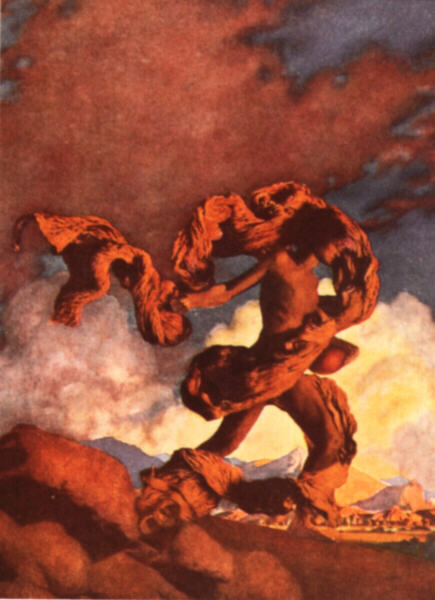
Cadmus Sowing the Dragon's teeth, by Maxfield Parrish, 1908.
Cadmus and the dragon, black-figured amphora from Euboea, ca. 560-50 BC, Louvre
Diana and Actaeon by Giuseppe Cesari, 1606
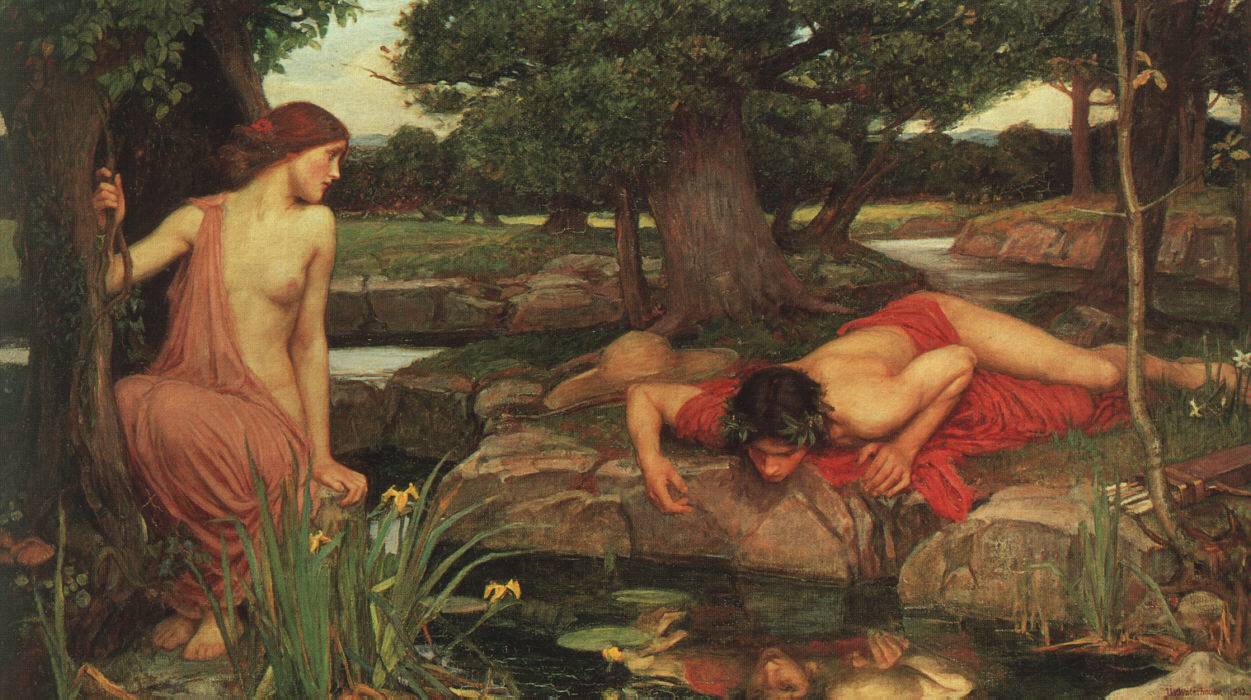
Echo and Narcissus by John William Waterhouse, 1903
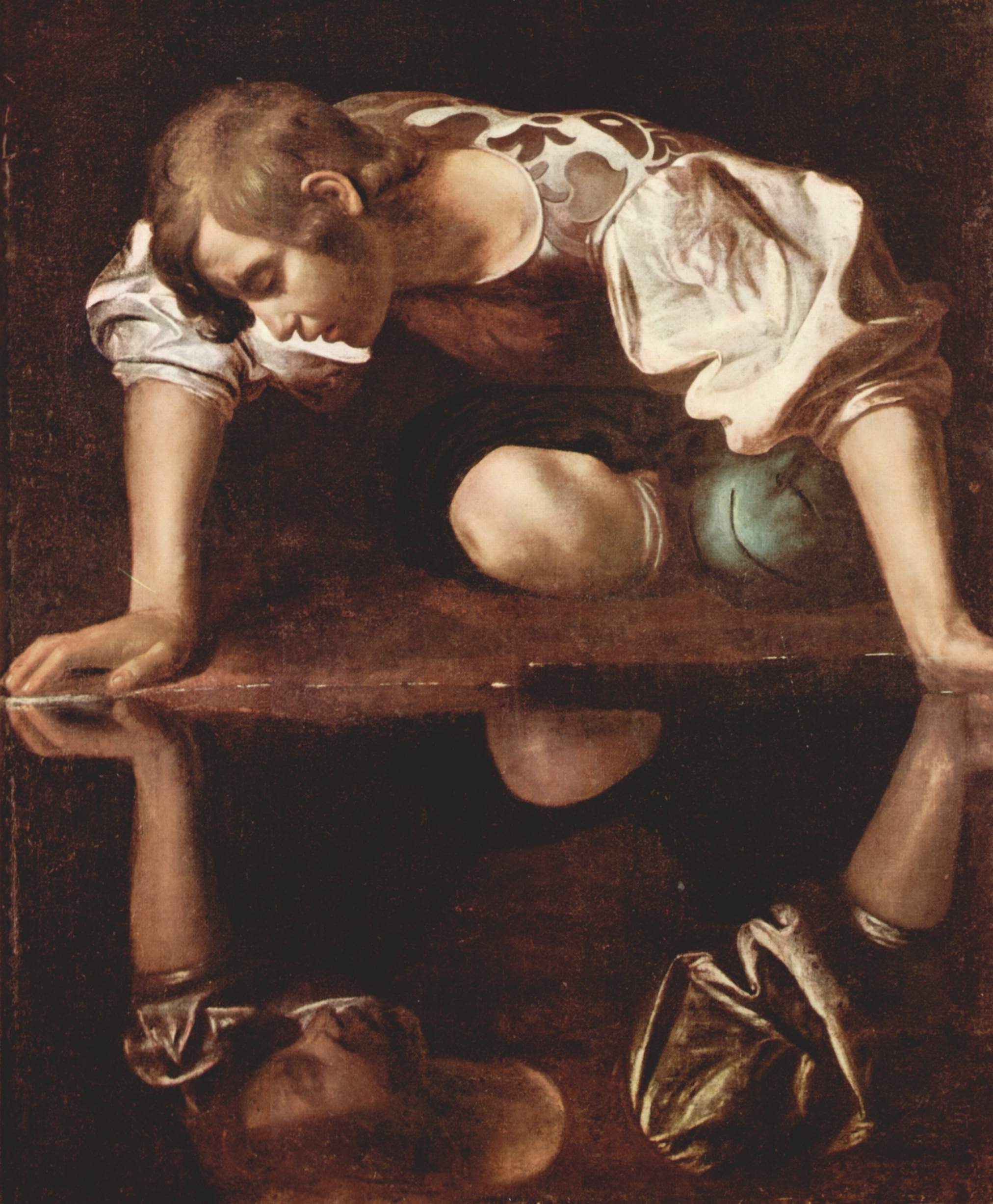
Narcissus by Caravaggio, 1597-1599
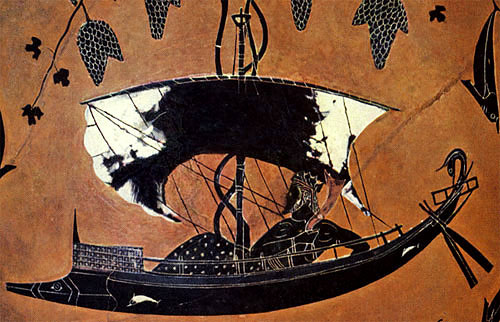
Dionysus on a boat surrounded by dolphins and grape-bearing vines. Attic Black-figure kylix by Exekias c.540-535 BCE
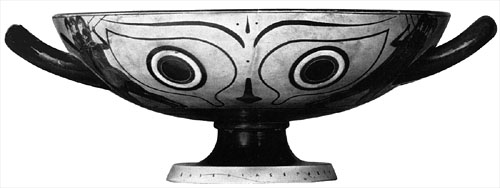

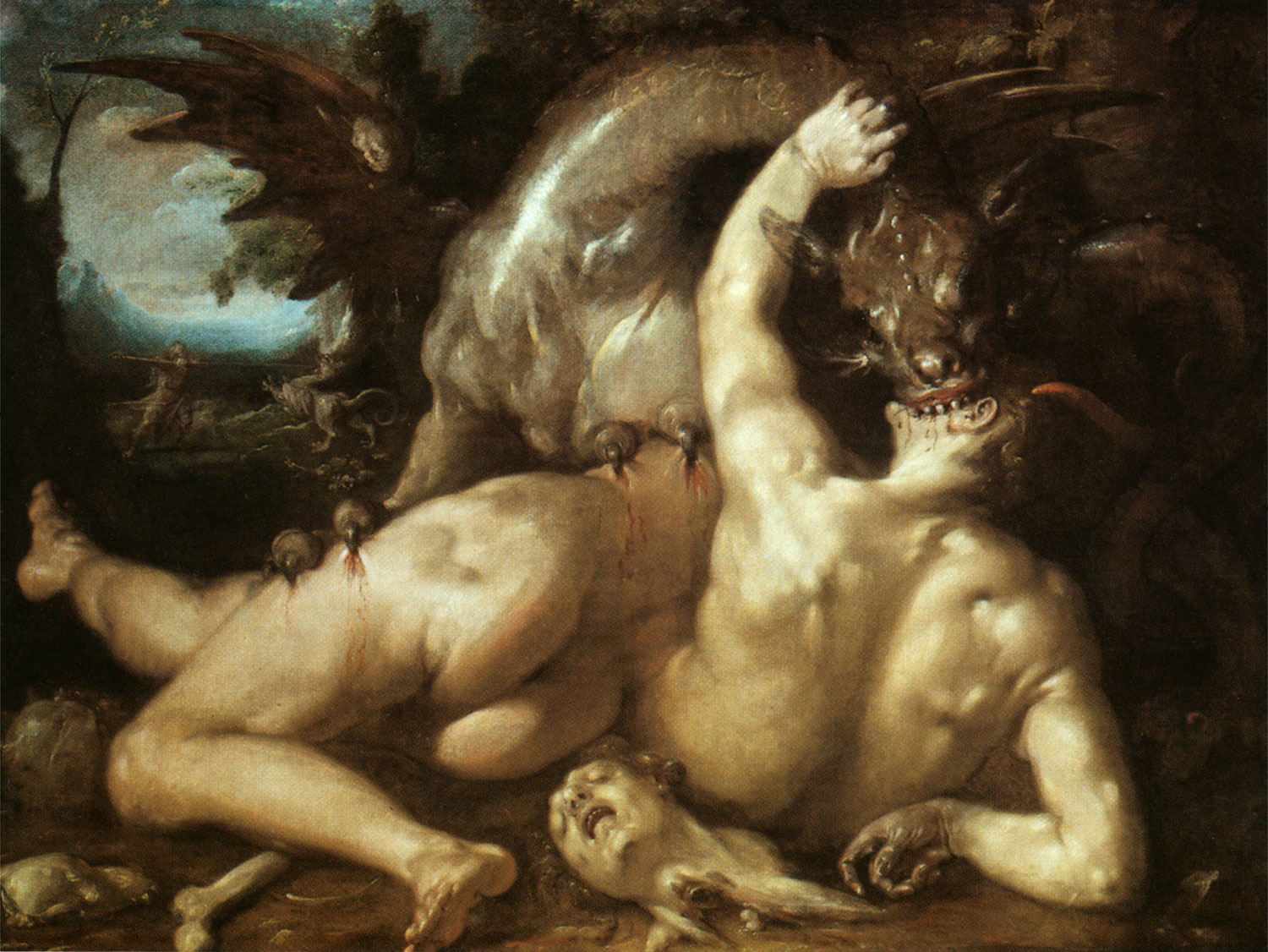
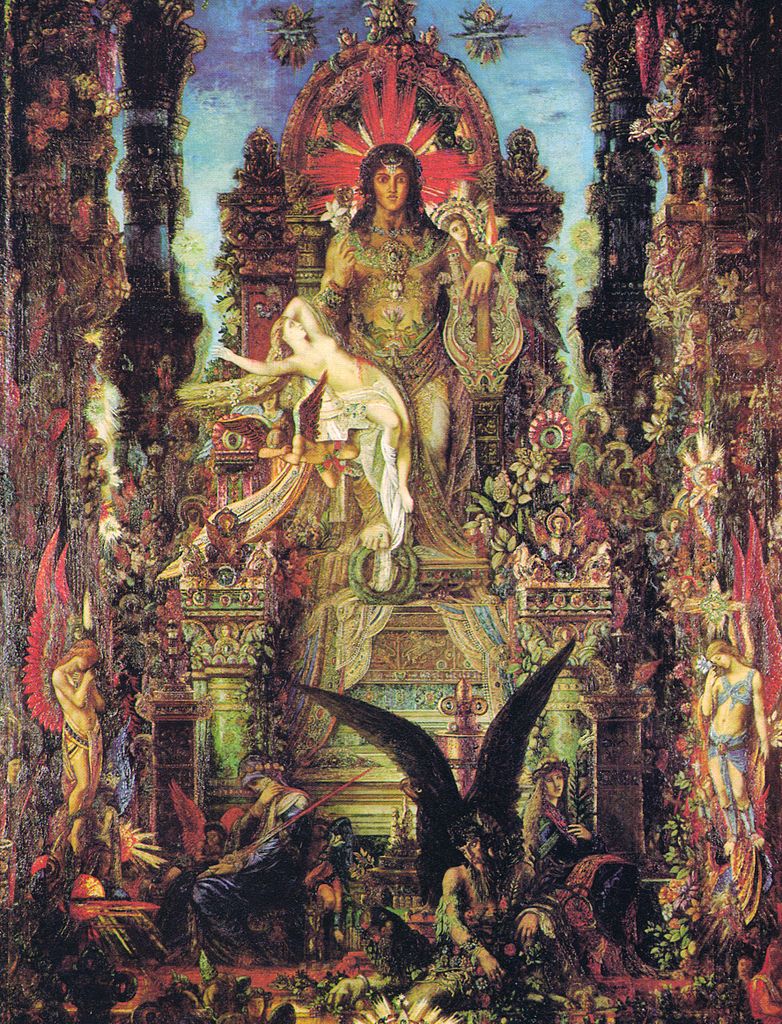
Jupiter and Semele by Gustave Moreau, 1890
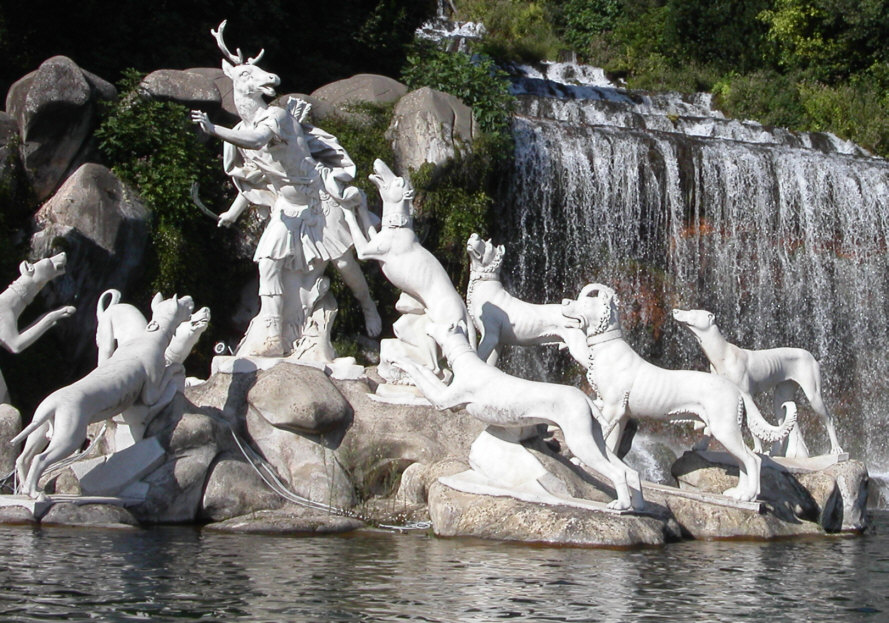
The Diana and Actaeon Fountain by Paolo Persico, Brunelli, Pietro Solari, 18th-Century Royal Palace at Caserta, Italy
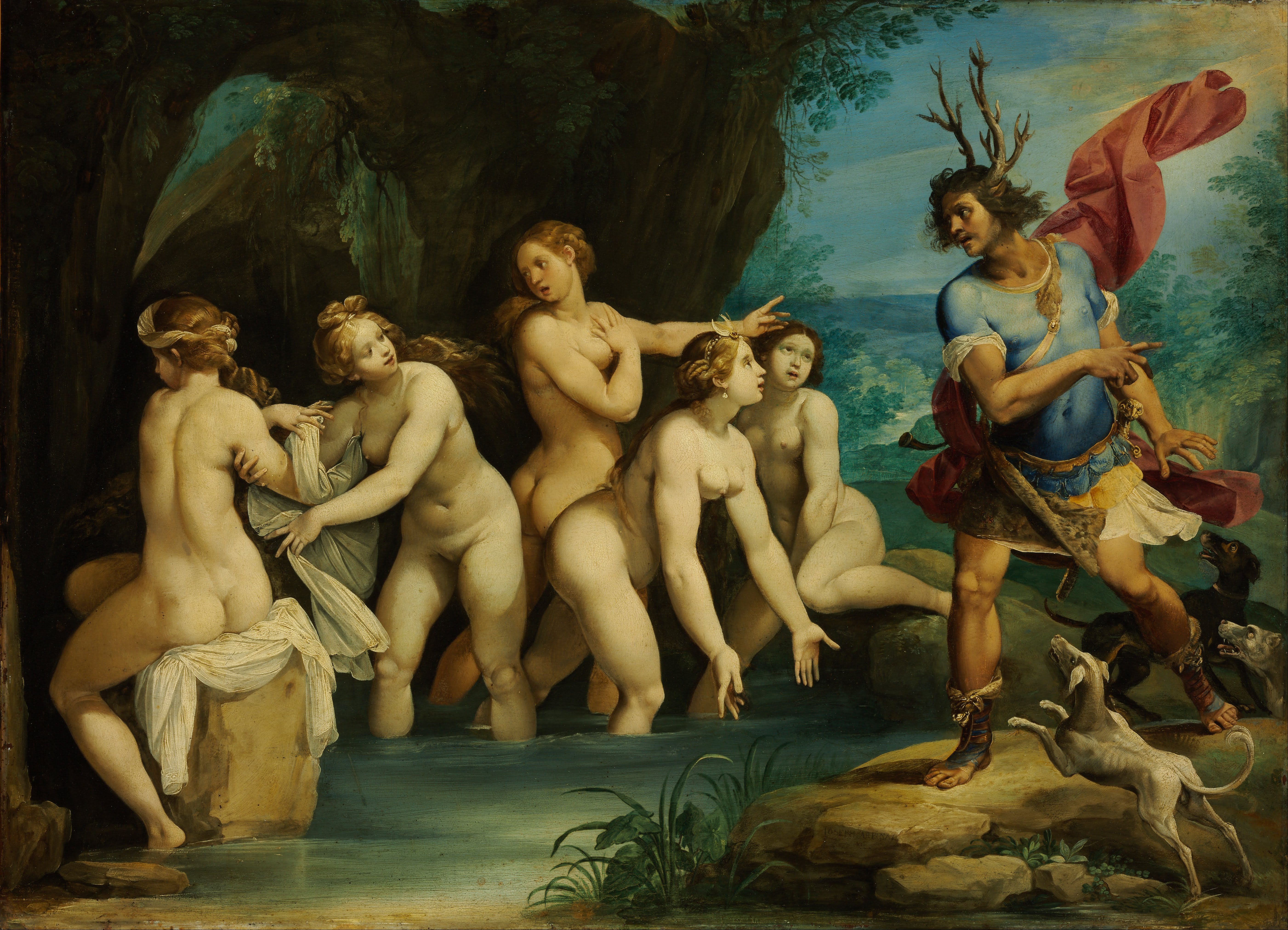
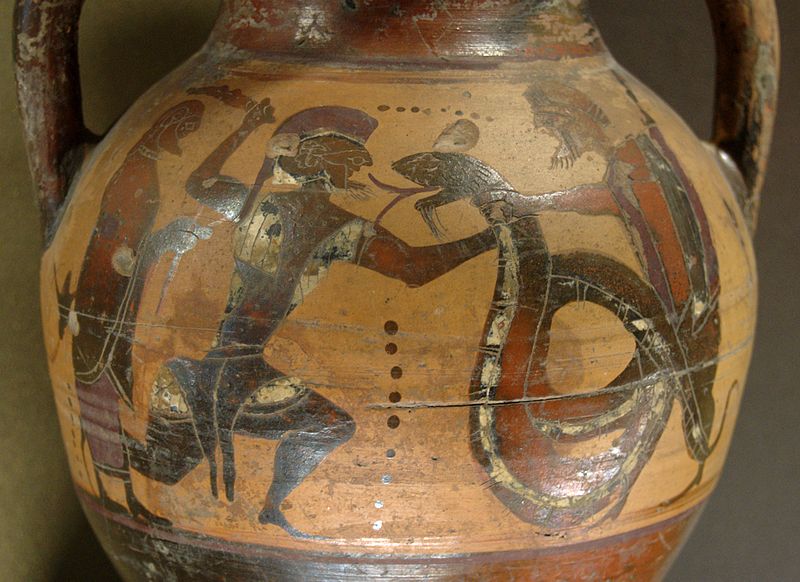
Two Followers of Cadmus Devoured by the Dragon by Cornelis van Haarlem, 1588
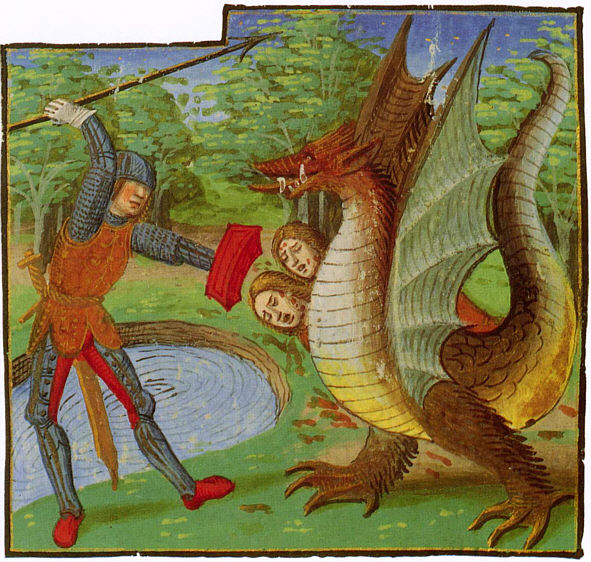
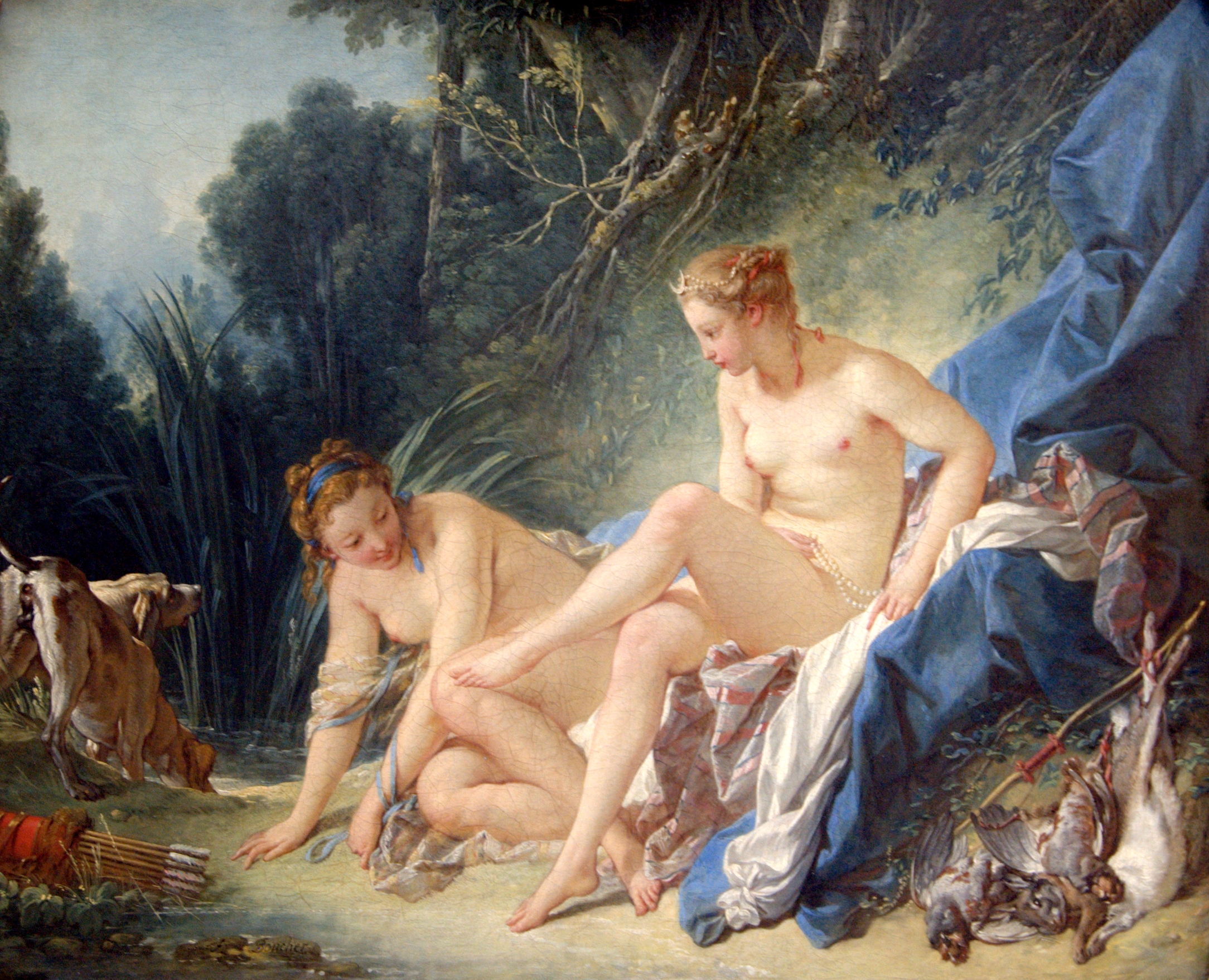
Diana Leaving the Bath by Francis Boucher, 1742
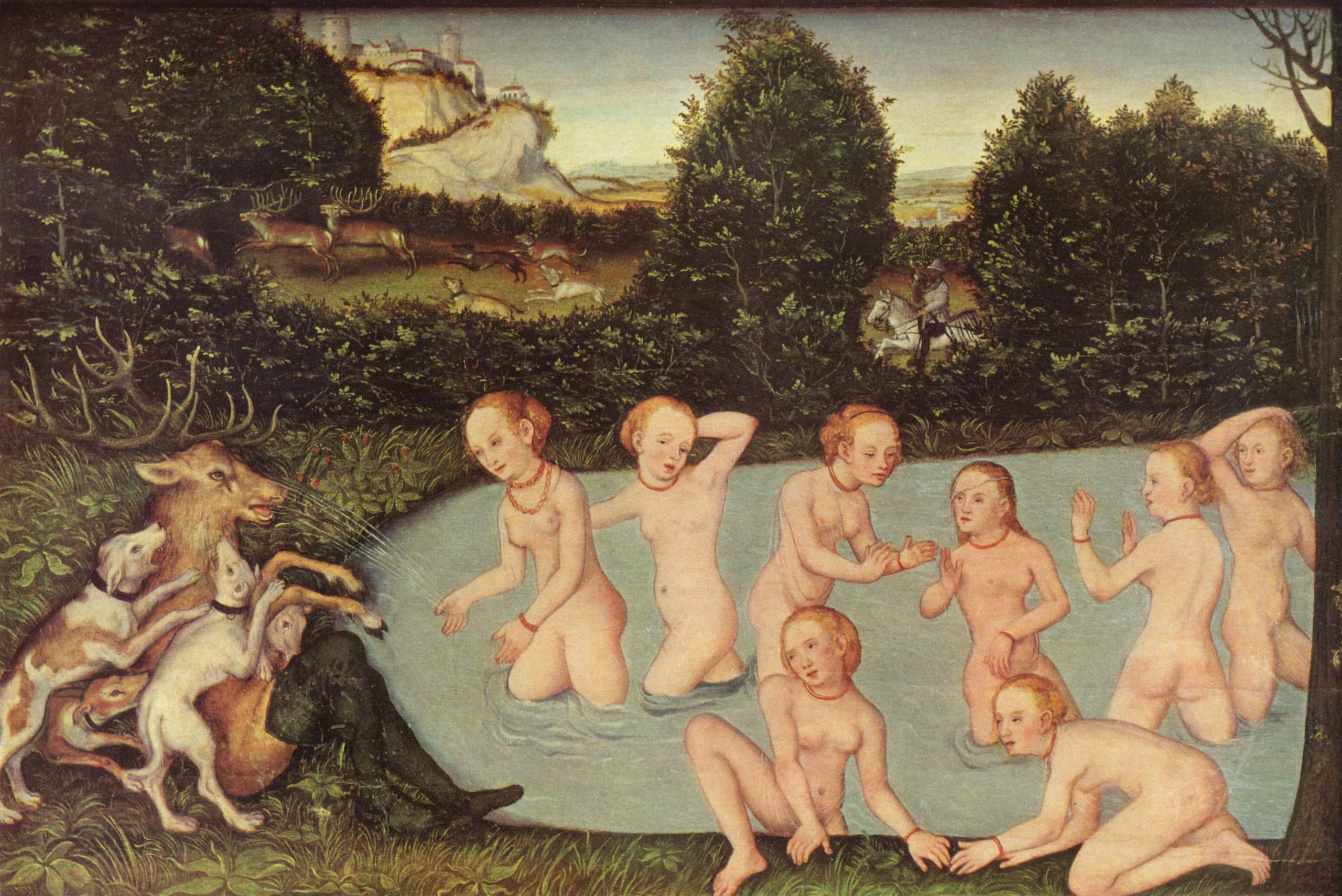
Diana And Actaeon by Lucas Cranach the Elder, c. 1519
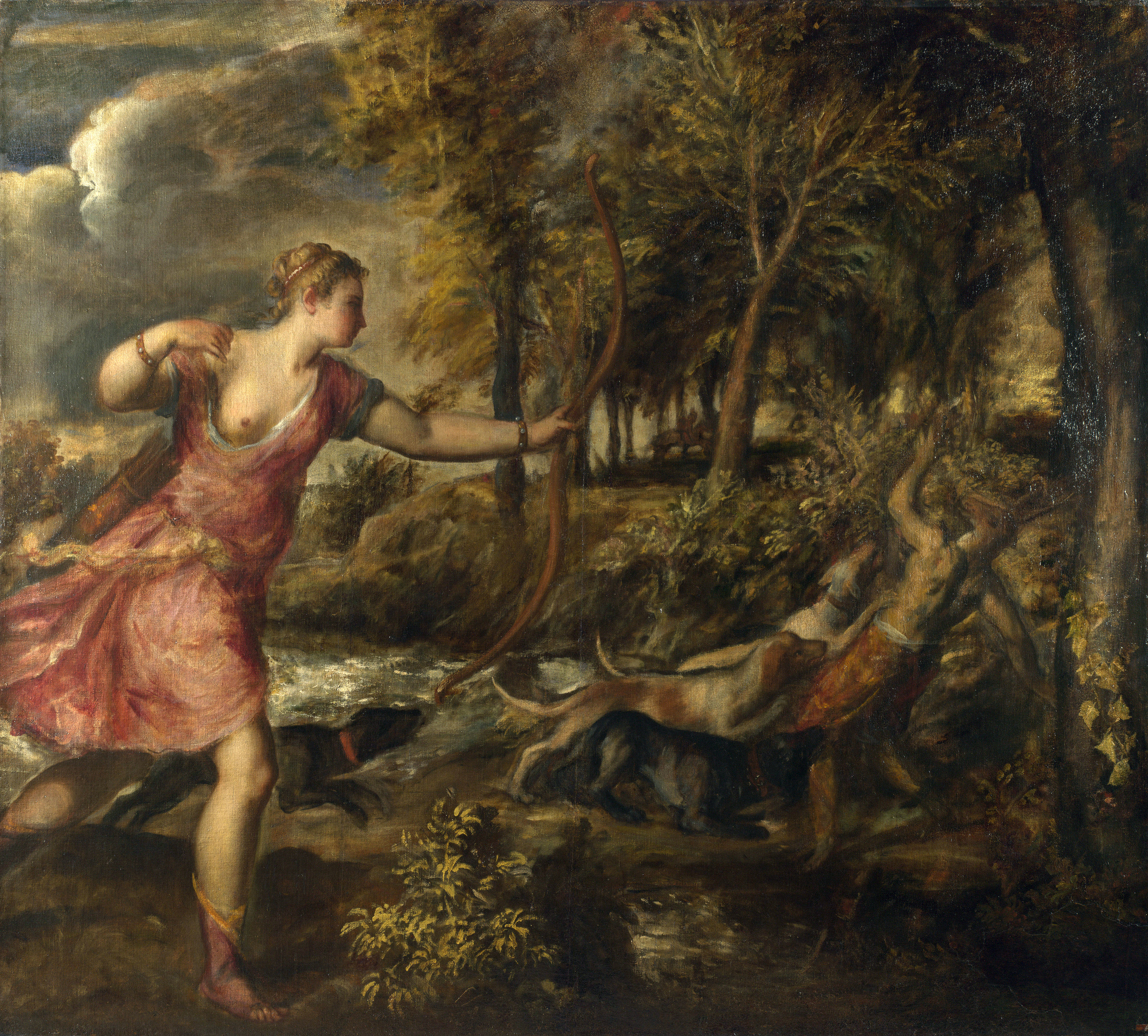
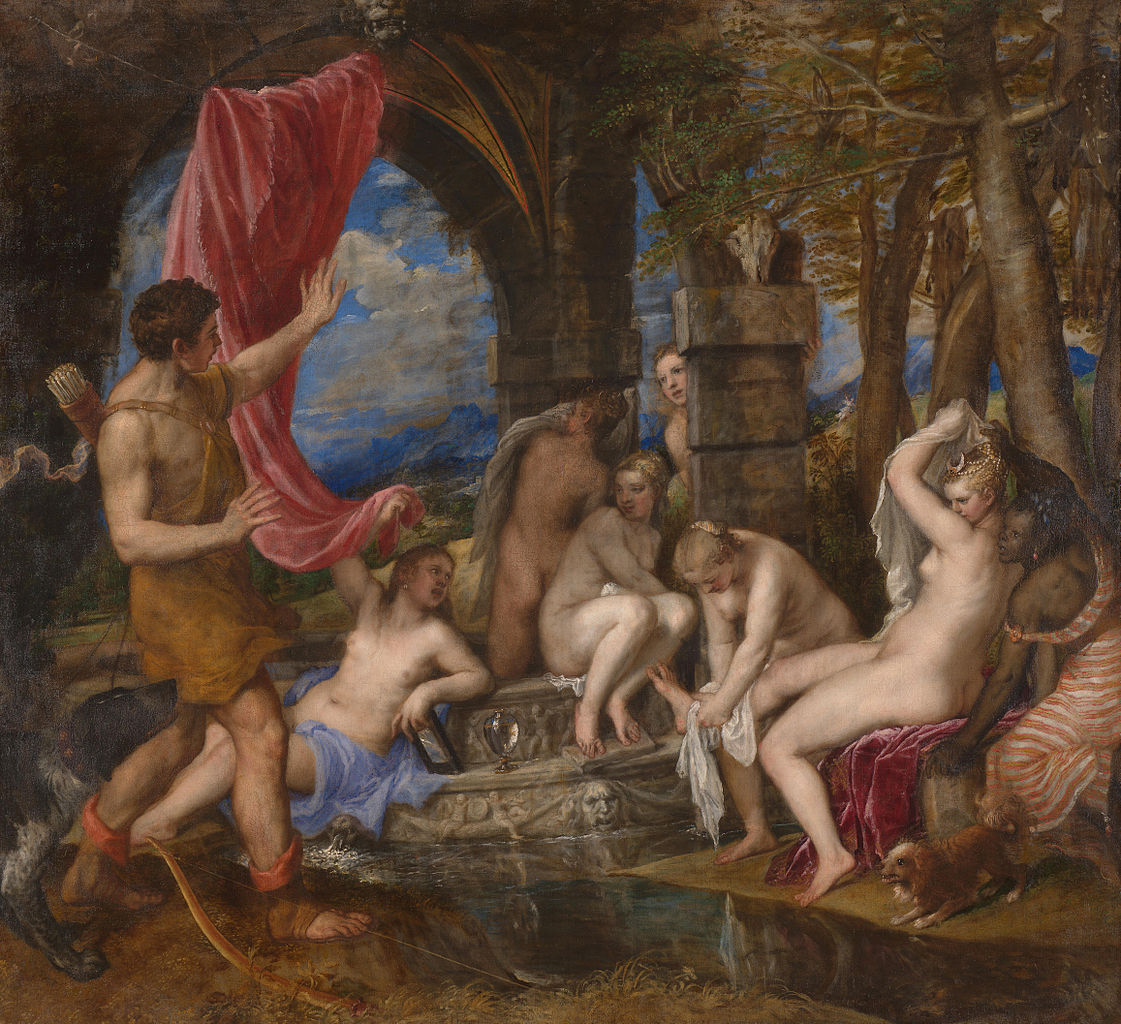
Diana and Actaeon by Titian, 1556-9
The Death of Actaeon, by Titian, 1565
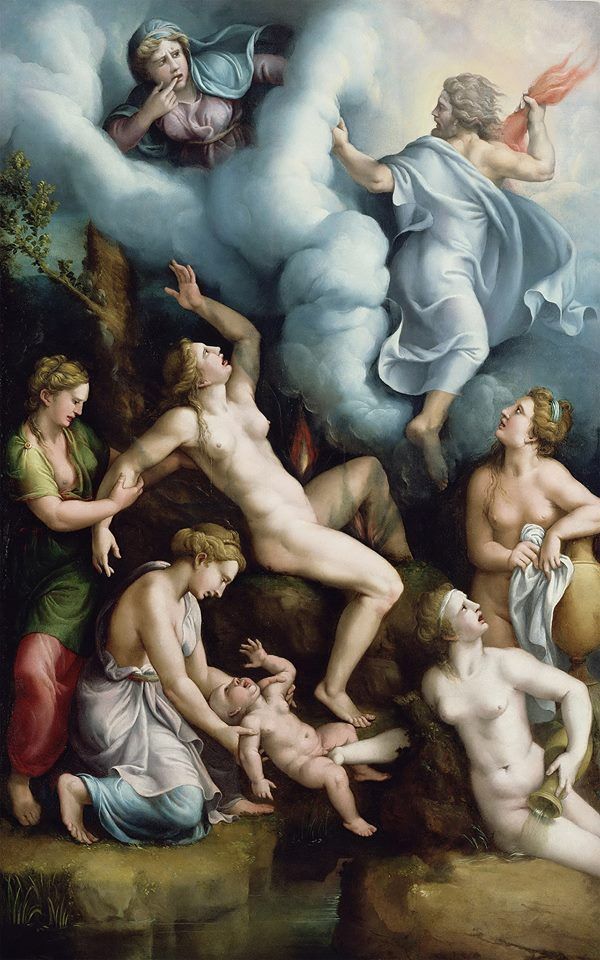
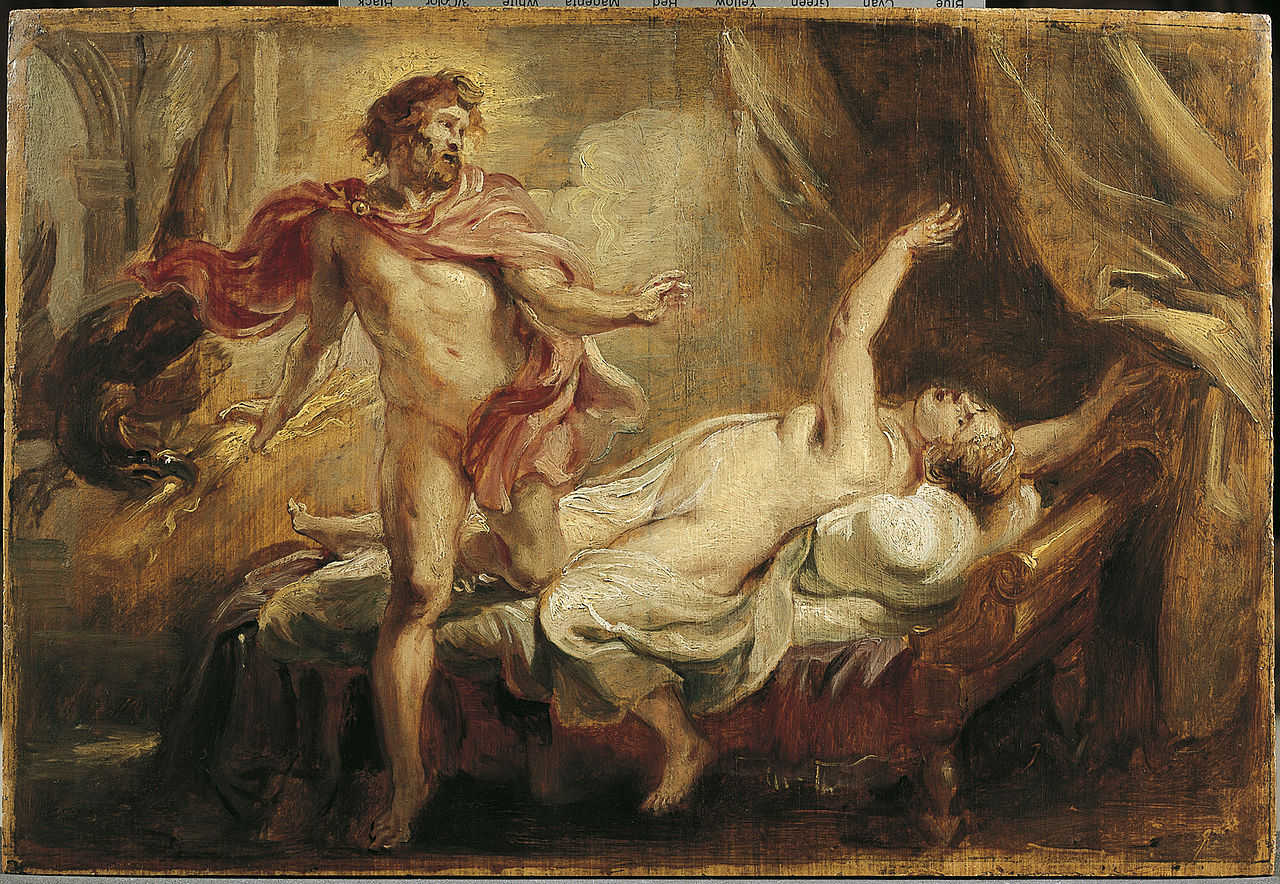
The Death of Semele, by Peter Paul Rubens, before 1640
The Birth of Bacchus by Giulio Romano, ca. 1535
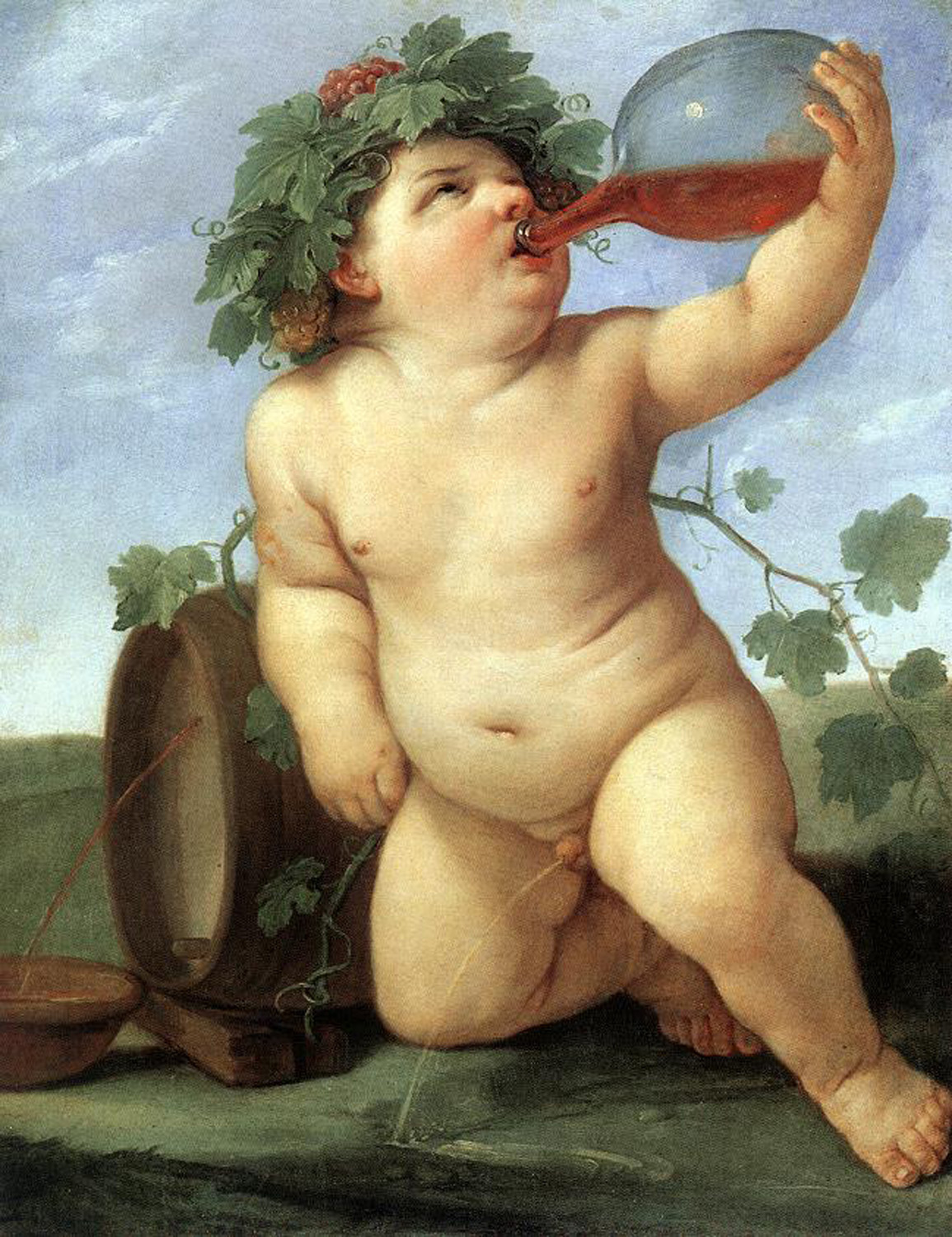
Drinking Bacchus by Guido Reni, 1623
The Infant Bacchus by Giovanni Bellini, 1505
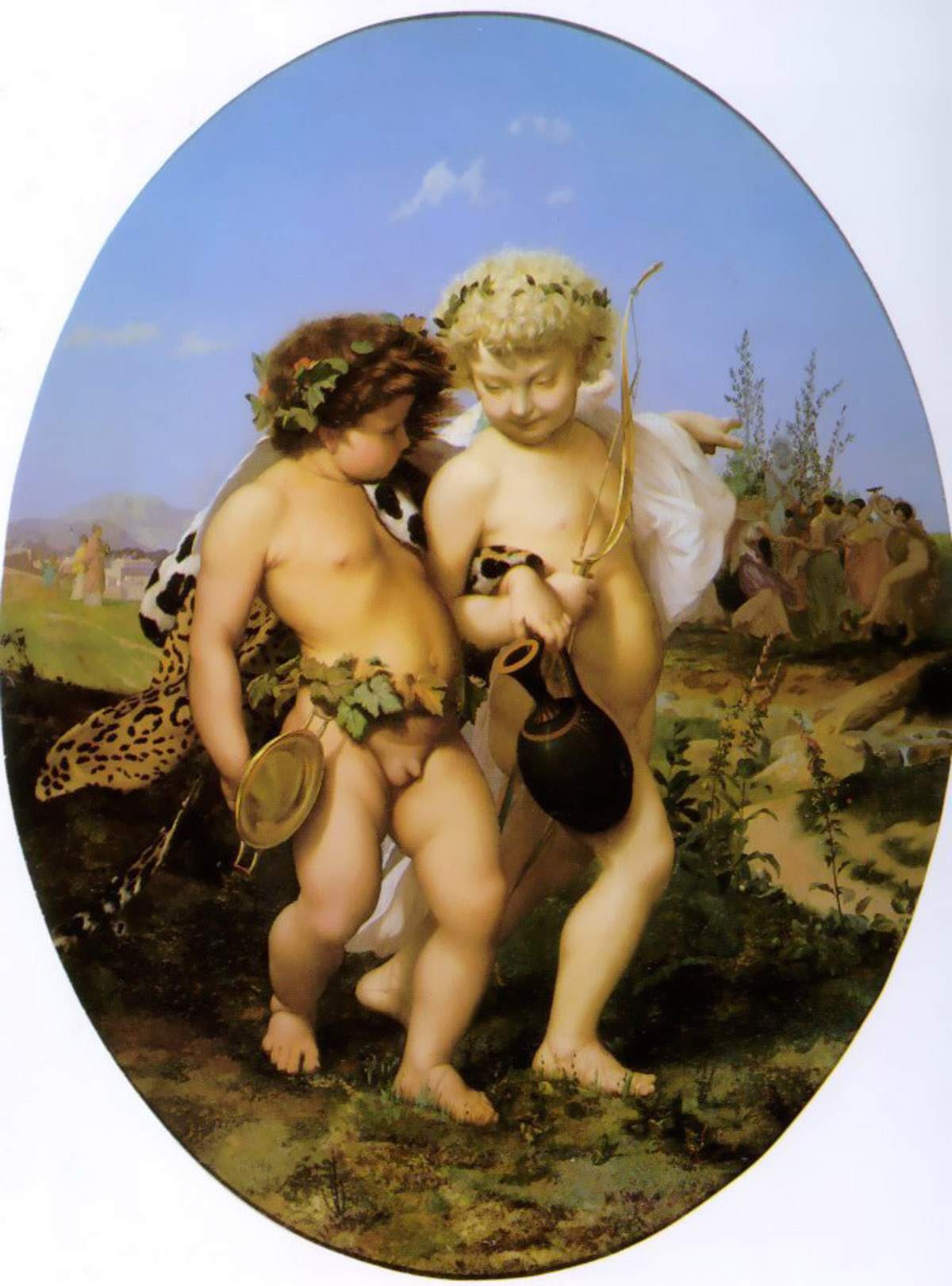
Drunken Bacchus and Cupid, Jean-Leon Gerome, 1850
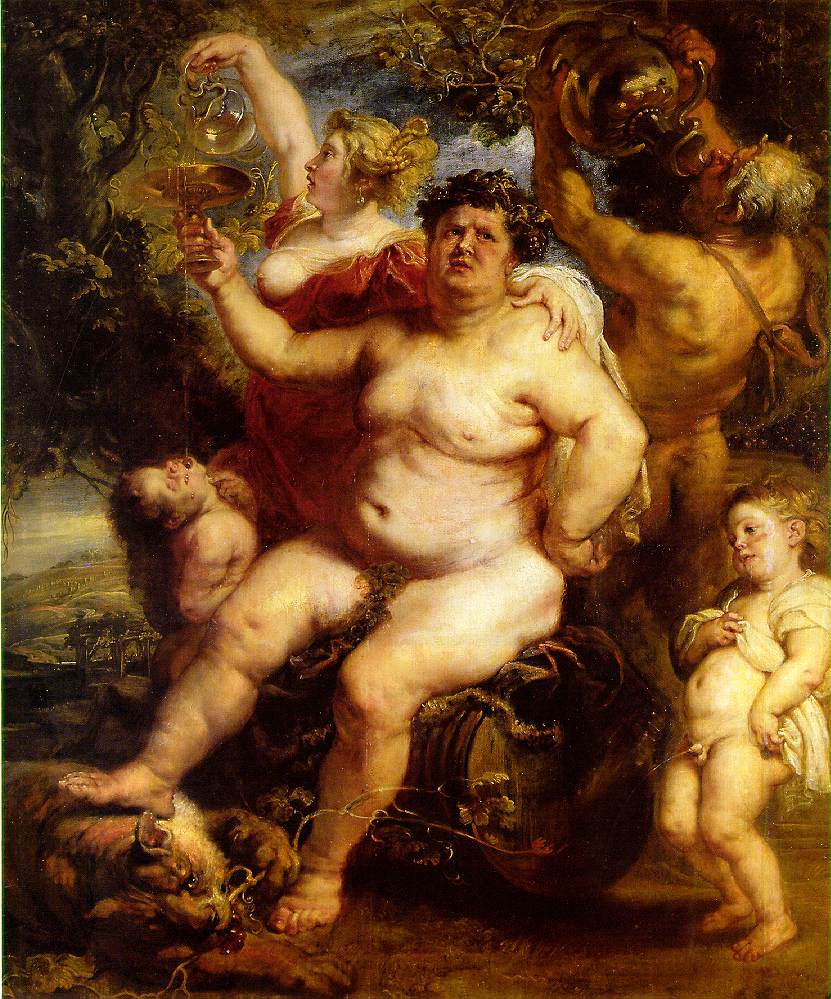
Bacchus by Peter Paul Rubens, 1638
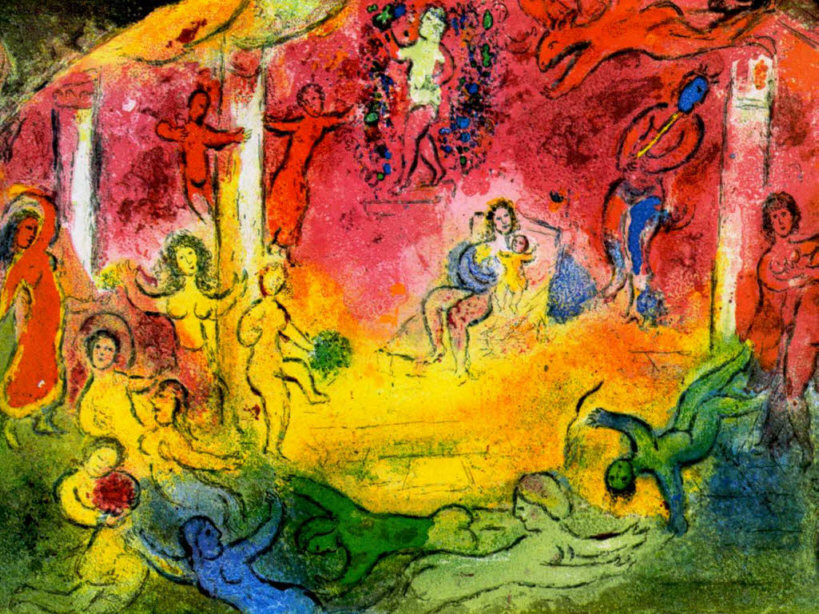
Bacchanal by Marc Chagall 1961
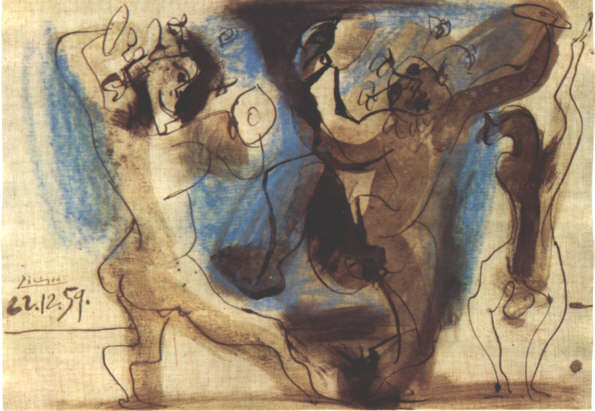
Bacchanale, Pablo Picasso, 1959
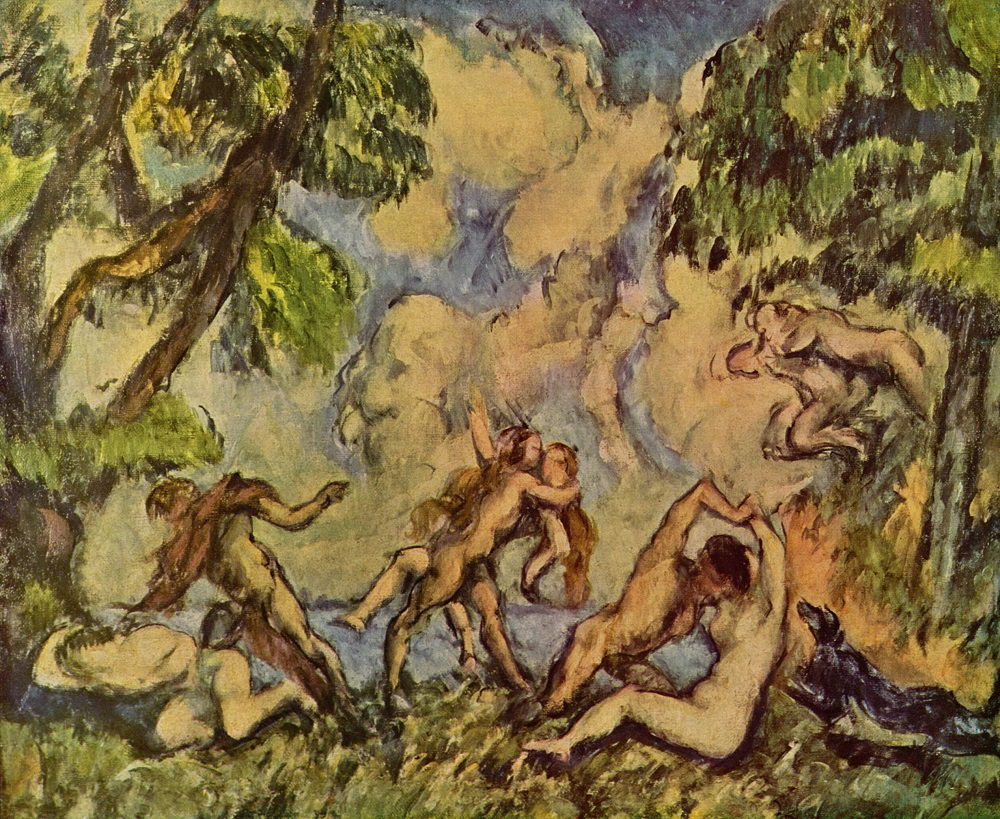
Bacchanalia by Paul Cezanne, 1880
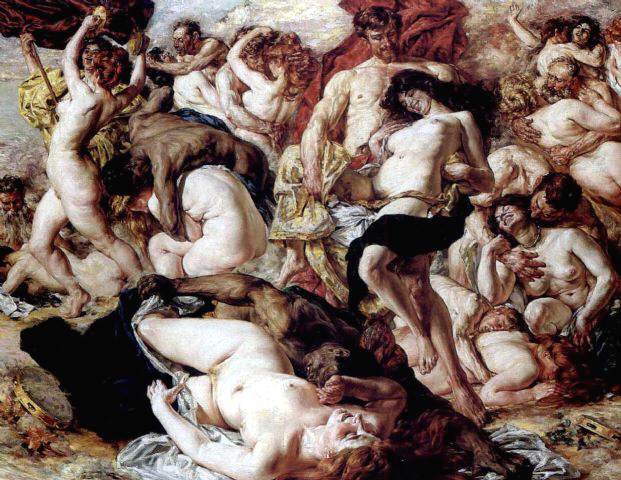
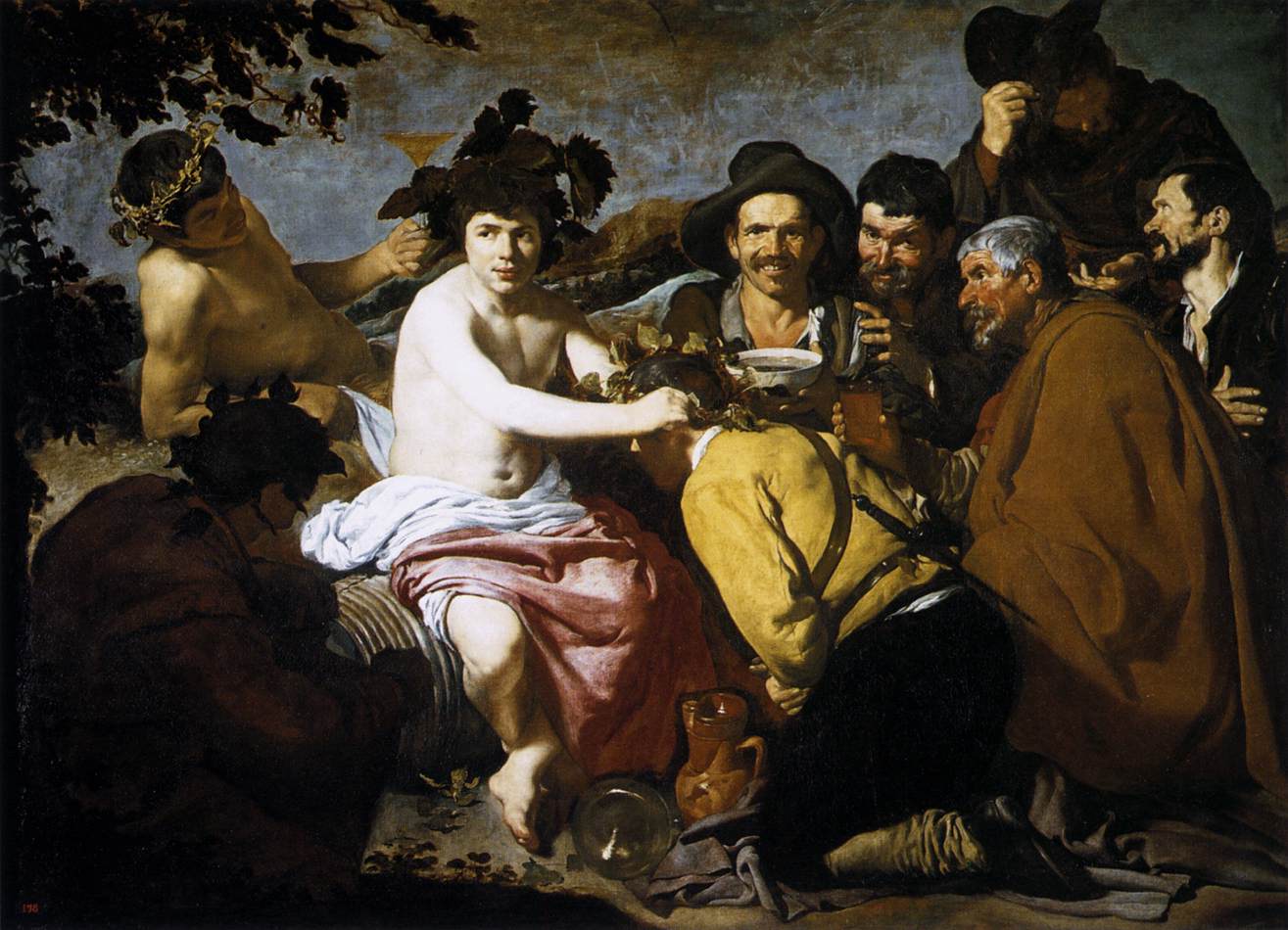
Baccchusfest by Diego Velasquez, 1628
Bacchanalia by Auguste Leveque, 1890s
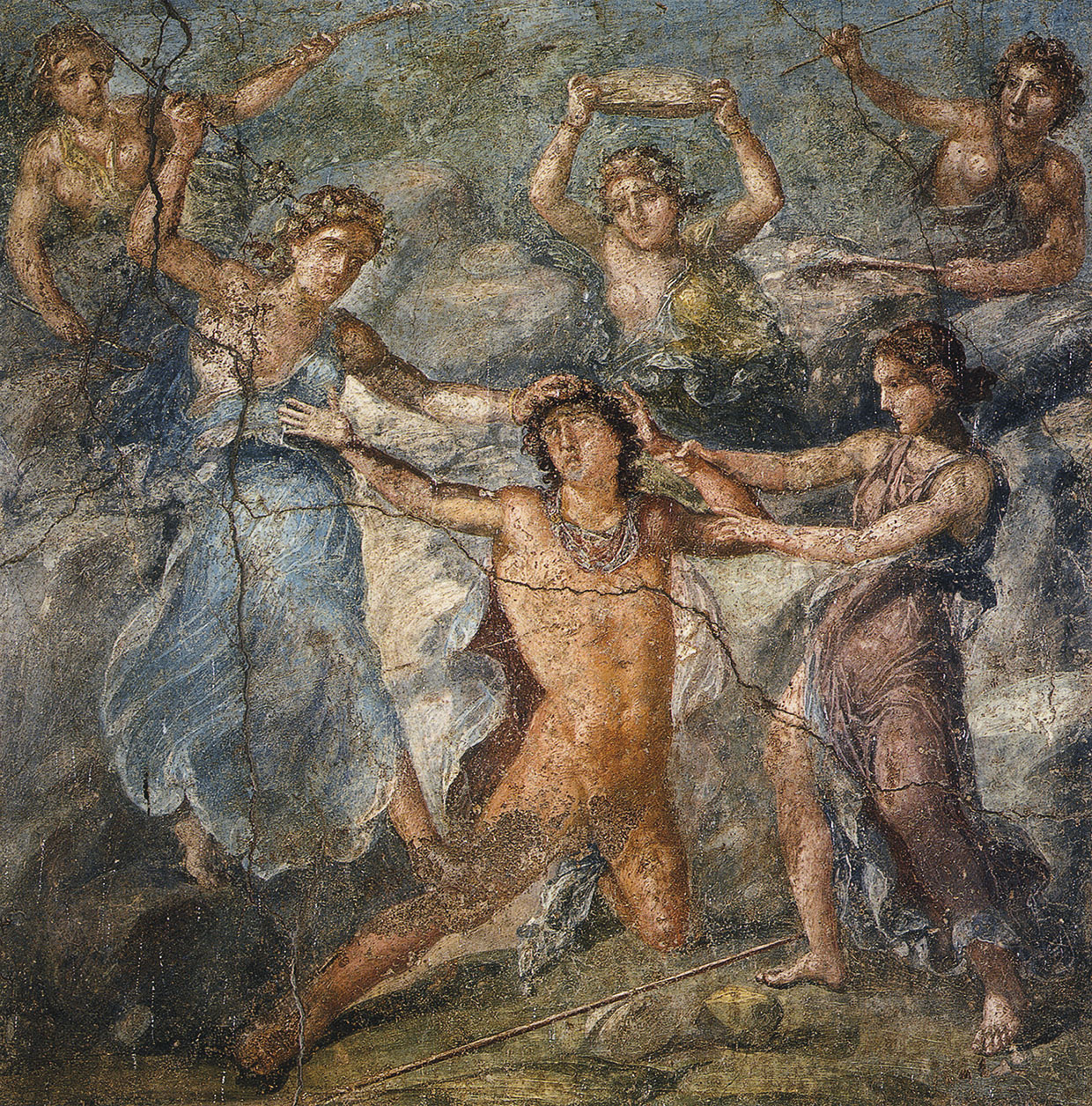
Death of Pentheus, torn apart by Bacchantes, Fresco on the central wall of the exedra of House of the Vettii in Pompeii, 60-79 CE.
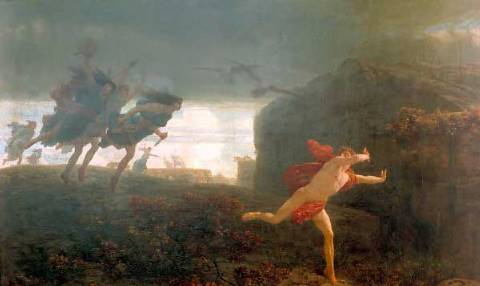
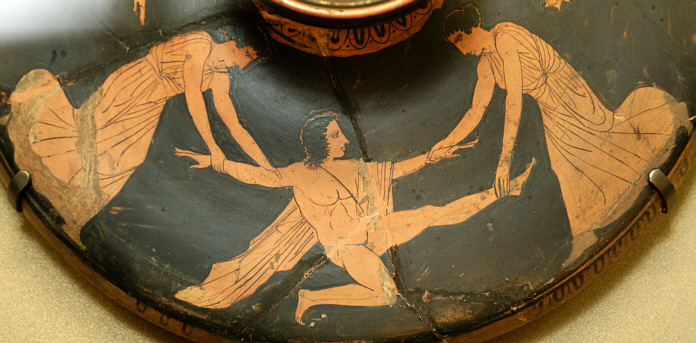
The Death of Pentheus, Attic Red Figure, ca. 480 BC
Bacchantes' Pursuit of Pentheus by Charles Gabriel Gleyre, 1864
Death of Pentheus: Attic Vase, 450-425 BC
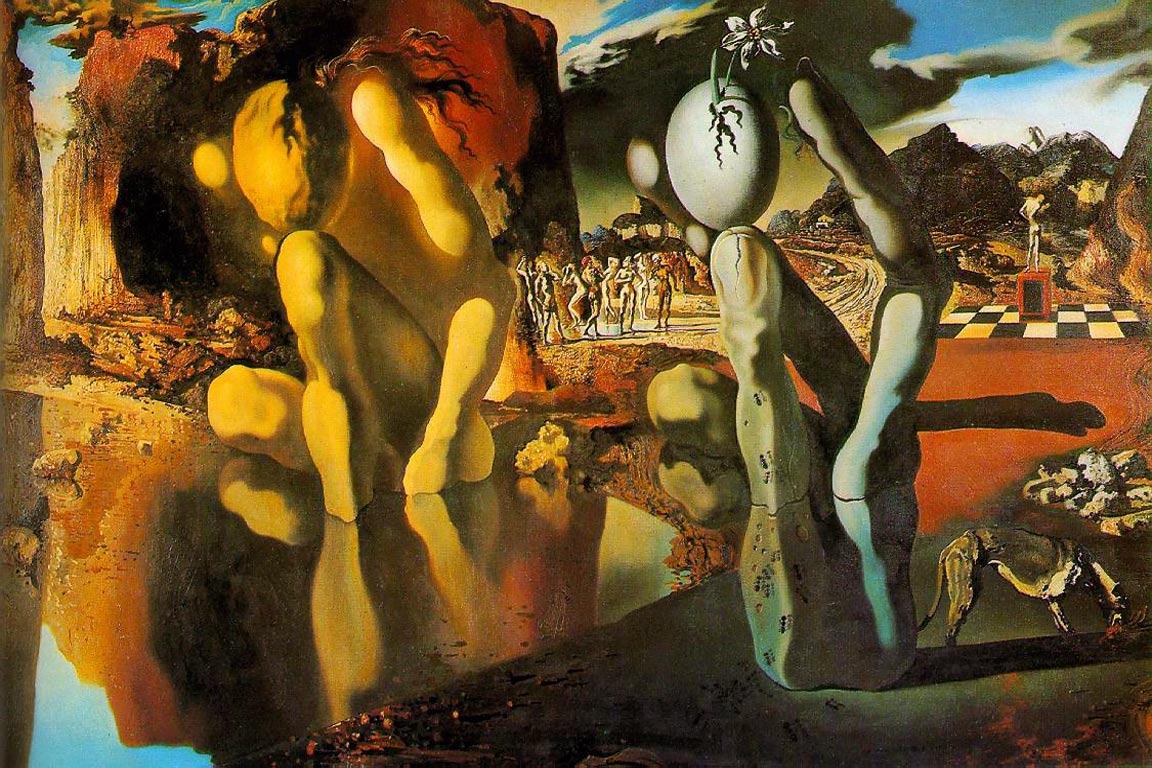

Metamorphosis of Narcissus by Salvador Dali, 1937
